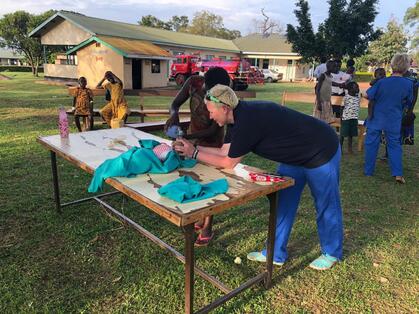 The aim of a Vocational Training Team or VTT is to train others or be trained. This years team is heading out Uganda for two weeks to train birth emergency skills to health professionals from Ngora Freda Carr Hospital and from surrounding health centres. The team itself consists of four midwives. Samantha Fleming is a consultant midwife and Claire Carter teaches infant feeding and care of the preterm baby from Royal Berkshire Hospitals. Danielle Naughton is a practice development midwife and Gillian Pearce is a governance midwife and the Rotarian Team Leader, both from Hillingdon Hospital. We will be training student nurses, midwives and health professionals covering various subjects including haemorrhage, deteriorating pregnant woman and baby, newborn life support, and difficult deliveries such as when the baby’s shoulders get stuck. Claire covers how to keep babies warm and how to feed them when it is difficult to latch babies onto a mother’s breast. We will also be working with the community, along with the Rotary Club of Ngora, who are planning a Rotary Family Health Day for our last Friday in Ngora. This could be a challenge! The events planned are Family Planning, Antenatal Care, Immunisation, Deworming, Cervical cancer screening, health education and training on menstrual hygiene. When I attended their meeting a couple of weeks ago via zoom, they had just completed a similar day and had 1500-2000 people attending! It looks like it will be a busy day! Our VTT is funding the menstrual hygiene element of the Family Health Day, and we will also be giving health education. We also give a small payment to each person who attends the Health Day to cover their travel costs and the loss of a day’s pay. There is no system in Uganda for continuing education, so by providing this training we are able to give health professionals an update on their skills. To do this we use World Health Organisation guidance and Global Health videos. One day is going to be spent training health professionals to become trainers, so that they can pass the information on once we have left. We also leave equipment, so that the trainers can carry on. Gillian Pearce VTT Team Leader Member of Maidenhead Bridge Rotary Club
0 Comments
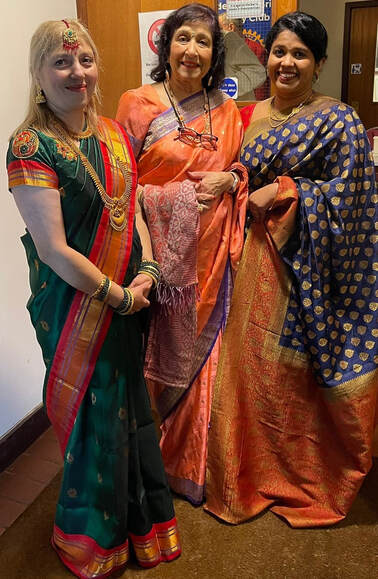 On the evening of Saturday, November 28th, 2023, Maidenhead Bridge Rotary Club hosted a memorable and successful Indian Cultural Night at Holyport Memorial Hall, the first of its kind. The event brought the local community together in a celebration of Indian culture while raising funds for two deserving charities: Alzheimer's Dementia Support and the Indian charity Goonj. The event was a resounding success, attracting a diverse and enthusiastic crowd of individuals from Maidenhead and beyond. Maidenhead Bridge Rotary Club, renowned for their commitment to community service and philanthropy, pulled out all the stops to create a night that will be long remembered. On arrival guests were greeted by members of the club adorned in full traditional Indian attire and were gifted beautiful bangles by the club. They then walked through a beautifully decorated entrance which included a statue of Hindu God 'Ganesh' and Rangoli, a traditional Indian decoration made with brightly coloured ground rice. Guests were treated to a delightful and authentic Indian meal prepared by Kebabsaab Catering, which featured a delightful array of flavours and aromas, highlighting the rich and diverse cuisine of India. The delectable spread included a wide selection of appetizers such as Samosas and Channa Masala, curries, saag panner, tandoori naan and mouth-watering Gulaab Jamun with Kulfi for dessert. Rajan Gujral, Event Organiser, commented “We organised this event to coincide with the start of Diwali, India's biggest and most important holiday of the year. Diwali is a festival of lights that celebrates the triumph of light over darkness, good over evil and the human ability to overcome challenges. Our Indian Cultural Night, and Rotary, certainly ticks all those boxes!” Prior to the cultural programme, Katie Hodges, District Governor of Rotary in the Thames Valley, started the evening with lighting a lamp. This is a very symbolic Hindu ritual, to ward off any darkness and negativity. The entertainment for the evening was equally enchanting, as the event featured live performances of traditional Bharatanatyam dances and energetic Bollywood songs. Dancers adorned in colourful attire brought the art of Bharatanatyam to life, mesmerising the audience with their grace and precision. The event was not only a feast for the senses but also a tremendous success in raising funds for two vital charities, with more than £2000 raised. Alzheimer's Dementia Support, a local organization that provides invaluable assistance to individuals and families affected by Alzheimer's and dementia, will greatly benefit from the generous donations. Additionally, the Indian charity Goonj, which works towards providing essential resources to underprivileged communities in India, will receive crucial support to further their noble cause. Maidenhead Bridge Rotary Club expressed their heartfelt gratitude to the event's sponsors, volunteers, performers, and, most importantly, the attendees for their support in making the Indian Cultural Night a triumphant and memorable evening. Club President, James Ticehurst, shared his thoughts on the event: "We are truly overwhelmed by the outpouring of support from our community. This Indian Cultural Night was a testament to the power of unity and cultural exchange. We are grateful to everyone who contributed to the success of this event and helped us raise much-needed funds for these remarkable charities." Maidenhead Bridge Rotary Club plans to continue its tradition of hosting vibrant and impactful events that bring the community together while supporting local and international charitable causes. For more information and to be kept up to date about other events organised by the club visit www.maidenheadbridgerotary.org.uk or contact Lisa Hunter on 07876 341334 or e-mail [email protected] 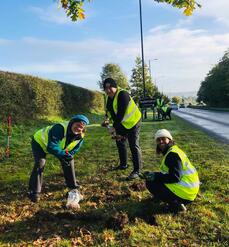 The unpredictable autumn weather played ball on Saturday as volunteers from Maidenhead’s Rotary and Rotaract Clubs came together to plant crocuses around the town. Rotarians of all ages donned wellies and got their hands dirty to sow a carpet of purple crocuses which will flower early next year. The initiative aims to raise awareness of the global campaign to eradicate the polio virus. The disease, which causes paralysis mainly in children under 5, was once widespread in more than half the countries in the world. Rotary International was a founding partner of the Global Polio Eradication Initiative in the 1980s, when 350,000 children a year were affected. Today, thanks to a global vaccination and monitoring programme, the wild polio virus is endemic only in two countries, and there have been only 9 cases worldwide this year. More than a dozen volunteers from Rotary and Rotaract planted crocus corms at Maidenhead Library, the Desborough Theatre behind the Town Hall and the approaches to Maidenhead at Thicket Corner and Furze Platt Road. Harrie Hayward, Project Coordinator from Maidenhead Bridge Rotary, said: “One of the reasons I joined Rotary was this idea that an organisation would decide to rid the world of a disease, and then do exactly that. It’s totally amazing that the vaccination campaign has been so successful. The polio virus is literally fighting for survival as the number of cases is pushed down every year.” Rotary’s slogan is ‘We are people of action’, and we prove that by going out into the community and doing things, whether delivering food parcels during COVID, getting people moving on the Maidenhead Boundary Walk or supporting other groups organising local events. “Today we had some new members, members from Maidenhead Rotaract, Rotary project partners for 18-30 year olds, and Rotary Direct members from elsewhere in the Thames Valley. It’s great to see people of different ages and backgrounds coming together for worthwhile projects.” Harrie continued. But the purple planting doesn’t stop there as on Thursday, Maidenhead Bridge Rotary will welcome a team of corporate volunteers from Ashfield MedComms, who will help to plant more crocuses in the Nicholas Winton Garden in Oaken Grove Park. For more information and to be kept up to date about other events organised by the club visit www.maidenheadbridgerotary.org.uk or contact Lisa Hunter on 07876 341334 or e-mail [email protected]
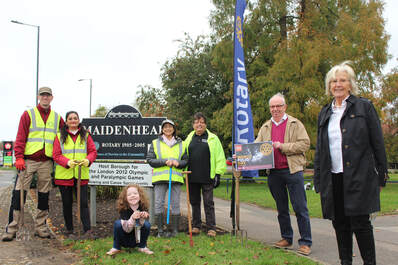 Maidenhead Rotarians have planted more than 7,000 crocus bulbs across the town to mark World Polio Day, on Saturday, October 24, and highlight the organisation’s ongoing battle to eradicate the disease. At the weekend about 30 volunteers from the town’s three Rotary Clubs – Maidenhead Bridge, Maidenhead Thames and Maidenhead – planted bulbs in parks and along roadside verges as part of the Purple4Polio campaign. In the spring these areas will be carpeted with purple flowers to represent the purple ink used to mark the fingers of children vaccinated in Rotary’s 30-year global campaign to end polio, which has seen the number of cases fall by 99.9 per cent. Once a worldwide scourge with 1,000 cases per day in 125 countries, more than 2.5billion children have been protected against the disease which is now endemic in just Afghanistan and Pakistan. This year saw a significant milestone in the battle when Africa was certified polio-free. The crocuses were planted outside Maidenhead Library, at the Sir Nicholas Winton Memorial Garden in Oaken Grove Park, at Bridge Gardens by the River Thames, and alongside the A308 in Furze Platt and the A4 near Maidenhead Thicket. Project coordinators Nisha Chettri and Harrie Hayward said: “Rotary in Maidenhead’s polio crocus planting saw more than 30 volunteers from the three Rotary clubs working together to plant thousands of blubs to celebrate World Polio Day and highlight the important work we’re doing to eradicate this disease from the planet. “We can’t wait to see the purple flowers bloom in the spring, sharing an important message with residents and bringing a splash of colour too.” Working with the World Health Organisation, Rotary has directly contributed more than $2billion to ending polio since 1985, including thousands of pounds raised by Maidenhead Rotarians. 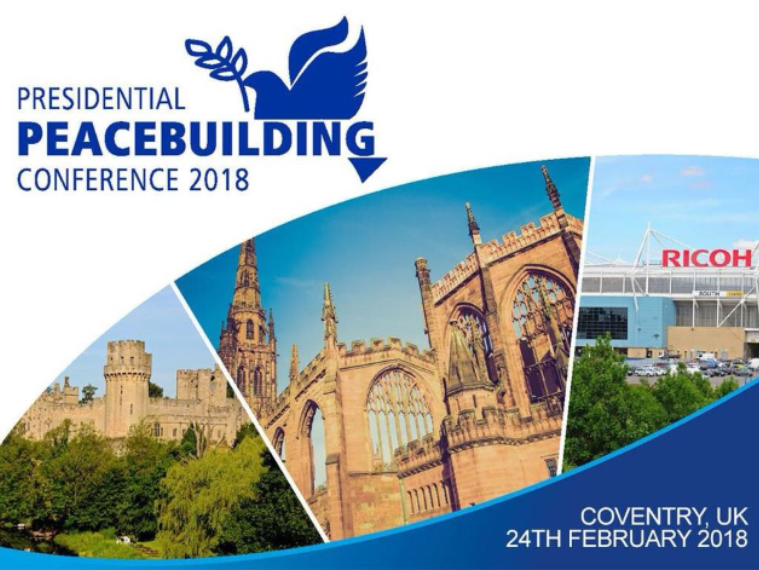 During 2018 a series of peace conferences are taking place around the world. Each is related to one of Rotary’s six areas of focus. The Coventry one focussed on the relationship between peace, and disease prevention and treatment. From our club, Victoria, Archana and I attended but several other Maidenhead Rotarians were also there. The day involved a very early start, and I must confess that on the train I wondered whether the day would be worth the effort! It certainly was! I had not appreciated that this was a global event. Neither had I quite realised the resources which Rotary can call on. I cannot envisage another situation where I would have the chance to hear from a Nobel Prize winner, a WHO expert and an academic on intercultural relations, in one day. The agenda was divided between plenary and smaller group sessions. In the breaks there were stalls about different topics – Rotary Foundation (our own charity), Rotary Action Groups related to health topics such as malaria, and those focussing on charities like the Jaipur Limb Project. It is impossible for me to pick out the best parts – because the day was of a very high standard. A few moments have stayed in my mind are as follows. A Polish Rotarian quoted Paul Harris who (apparently!) said “Working together there is no limit to what you can achieve”. We heard how important it was to engage local people in decision making about their own communities, and to be adaptable to local situations. A common theme was that every Rotary project that helped with water, health care or similar basic needs was also working towards peace. Even if it seemed relatively small, every contribution made a difference. The issue of safety came up. I had never considered that health workers would be among those killed, in man-made (and natural) disasters, and the community would have lost their expertise at a time when it was most needed. It is noticeable that the countries where polio cases are still occurring, are those where it can be dangerous to carry out vaccination programmes. This was really brought home to me when one of the hugely impressive young peace scholars talked about how they had made risk assessments. She said local conditions must be understood, and that even the choice of vehicle and what was written on it mattered, to ensure one was recognised as being truly neutral. Dr Guerra from the WHO gave profuse thanks to Rotary for its commitment to ending polio. He quoted Bill Gates who said “Rotary continues to be the heart and soul of polio eradication”. We heard that the End Polio Now campaign was a great example of successful cooperation between Rotary and several other agencies. Also PolioPlus has provided infrastructure that can be used for other crises – as it was during the Ebola outbreak. The Iranian lawyer Shirin Ebadi (Nobel Peace Prize 2003) said the main reason that dreams are not fulfilled is fear of failure, but any setback could be the prelude to bigger victory. “Before a leap you take a step back, so you can leap higher.” She emphasised that to tolerate each other we must first know each other, and that peace was a culture that has to be taught from childhood. At the end I felt a mixture of optimism, gratitude for living where and when I do, and mental exhaustion at the sheer volume of information and new ideas to which I had been exposed. It was a remarkable experience and I am so glad I decided to go. “Words without deeds are dead – we as Rotarians bring them to life.” 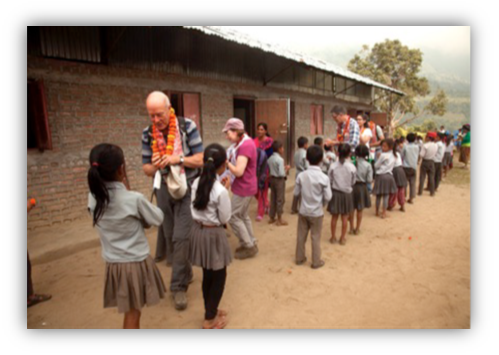 Bouncing around in the tractor, I narrowly escaped unconsciousness as my head threatened impact with the metal frame holding up the canopy ‘protecting’ us from the elements. I exchanged smiles with my fellow Rotarians, belying the discomfort and fear we were feeling. What had led us to this situation and was it all worth it? Exactly 5 years previously, I had trekked to Everest Base Camp, raising money for RP Fighting Blindness. It was a profound experience in a wonderful country – the beautiful Himalayan mountain range, the rich culture and the humbleness and welcome of the Nepalese people. Following the news of the devastating 2015 earthquake, Maidenhead Bridge Rotary Club (MBRC) members (many of whom also had personal connections to Nepal) were committed to finding a sustainable project to help in some small way. The power of Rotary Our club connected with Faringdon Rotary (FRC), who already had links with Kopundol Rotary (KRC) in Kathmandu. I joined Gordon and Bjorn from FRC on a trip to Nepal in October 2017. Maheswor from KRC, who has been leading on school reconstruction projects, is also a tour operator and pulled together a packed programme for our 2 week stay. We received a warm welcome at the KRC meeting. It began formally with a silence for peace and a recap of the Rotary 4 way test: Is it the truth? Is it fair to all concerned? Will it build goodwill and better friendships? Will it be beneficial to all concerned? The club membership consists mainly of male professionals. One member commented that they were surprised to see a lady Rotarian! FRC spoke of partnerships, projects and presentations. I winged a short and sweet introduction on our club culture and what had brought MBRC to Nepal. I gave the President a gift from our club – a desk block with photographs of iconic places in Maidenhead, including the Brunel Bridge. Demographics and formalities aside all 3 clubs were able to demonstrate that we are working towards the same goal. I can honestly say that by the end of the 2 weeks a strong bond formed between the clubs and friendships were forged. Festival Fever Our trip coincided with Tihar – the Festival of Lights. A profusion of colour, candles, lights, music and dancing emanated from every corner of the city. Dogs are celebrated on one of the days and garlands adorned their necks as they slept in the warm smoggy streets of Kathmandu. We were invited into Maheswor’s home and enjoyed a traditional Newari meal. We sat on the floor and ate with our hands. The ceremony culminated in blessings from Maheswor’s wife. Rotaract performed traditional songs and dances, before dragging the unsuspecting audience to partake in the revelries – much to my embarrassment as I don’t seem to have been gifted with a sense of rhythm! Bhai Tika falls on the last day of the Tihar festival - the celebration of brothers - I sent mine a simple text message, as I reflected on the symbolic importance of the day. THE PROJECTS HORAC Children's Home We met Tej, the Director of HORAC Children's Home in the gardens of the Summit Hotel (our home for a week) on the day we arrived. I hadn’t even had the chance to unpack my mosquito repellent and was consequently bitten all over! Tej, an orphan himself, now runs the home with compassion, dedication and a strong vision for the future. He explained that the 32 children have come from Western Nepal and have been orphaned by war, disaster or given up by their families. London RC and Faringdon RC currently provide annual grants supporting with education. Later in the week, we visited the home and were treated to performances of singing and dancing by the talented children. It was evident how hard they had worked and they took pride in showing us around the home. We met with Tej again and I asked about non-financial support. We will be discussing ways we might be able to help via our ‘Pimp my Community’ scheme. Watch this space. More information on HORAC can be found here: www.horac.org Habitat for Humanity Site visit In 2012 a team from Faringdon Rotary were part of a Humanity for Habitat project. Bjorn and I travelled to the site in Dhulikel to see how the houses built had fared after the earthquake. The results were shocking, with only 2 or 3 of the 40 houses remaining. Bjorn is following up with Habitat. Opening of Shree Tara School Faringdon RC was a major donor in 2015/16 for the reconstruction of the main classroom block, which had been badly damaged in the earthquake. We were greeted by the teachers and children with garlands and prayer scarves. I was whisked away by some children to see their classrooms and I wrote my name and Namaste (greetings) somewhat illegibly on the white board. They all wanted individual photographs with me, for which the Kopundol RC President’s daughter kindly obliged. I wasn’t AWOL for too long as I managed to catch up with the others in time for the formal presentations. Visit to Shree Ratna School We visited Shree Ratna School, which was undergoing reconstruction and had been supported by the Winchester Nepalese Community. A new computer lab funded by ‘My Nepal’ had been installed. A proposal for equipping a science lab has now been received but we have decided to concentrate our efforts on one project – Saurpani. Saurpani Primary School So back to that tractor…….. Saurpani is high in the Gorkha hills and for many the journey would be insurmountable. We began by car and then transferred to a 4 wheel drive truck as we negotiated off road. There came a point where we had to abandon the vehicles and trek on foot. As I panted and sweated up the hill, I thought back to 5 years earlier when I last trekked in Nepal and realised that to maintain the same level of fitness, you actually need to continue exercising! After about an hour or so, we came across a man with a tractor. After some negotiating by our Nepalese hosts, we found 4 of us, plus driver, squeezed into the front section, with others standing behind on the trailer. I am pleased to say we eventually reached our destination. Two lines of children greeted us, pressing small marigold flowers into our hands, which we clasped together saying Namaste (also thank you). We surveyed the school and met with the school management team. Two buildings were completely destroyed in the earthquake. The school has 160 students, although 200 before the earthquake – many have moved out to the city centres for their education. There were a number of temporary learning classrooms that had been erected by social organisations. One building was being rebuilt with government funding and the school are now requesting funding for a 3 room building. At a recent club meeting, we agreed to put £1000, already raised and being held by KRC, towards this project. Exploring the spiritual My guide book said if you ask a Nepalese person if they are Hindu or Buddhist they will answer ‘yes’ and this was proved correct when we asked one of our drivers that very question. Both religions appeared to sit comfortably alongside each other. In Lumbini we visited Buddha’s birthplace and in Kathmandu visited the Buddhist Stupa at Budnanath (now completely refurbished after the earthquake, with money coming from the Buddhist community). We had an audience with a monk at a monastery, having been advised by our guide that the monks sitting outside Buddha’s birthplace were “fake monks” – attempting to get money from unsuspecting tourists. City life I was incredibly saddened to see the earthquake damage in Kathmandu. Reconstruction is slow with much of the funding in Durbar Square coming from the US and China. Tourists that had filled the market 5 years ago remained elusive. However, we were told that tourism is beginning to pick up again from this year. The roads and infrastructure have also paid the price, which exacerbates the already dangerous driving conditions that I remembered. Cars, motorbikes and people vie for position – undertaking, overtaking, swerving to avoid damage in the roads, whilst invariably speaking on mobile phones. We experienced a few near misses with a small child and a dog running out in front of the car; road rage and minor altercations. Pollution is prevalent not only in the cities but I even saw piles of plastic bottles and other rubbish in Chitwan National Park. Given the big task that Nepal has ahead in rebuilding, I fear that environmental issues are at the bottom of the agenda. But amongst the rubble, the pollution, the congestion – there lies a beautiful country with the resilient Nepalese people at its heart. Village tours – voyeurism? I battled with the concept of village tours and their sustainability. We walked through a Gurung village and also visited a Tibetan refugee camp. The benefits feel more in favour of the tourist rather than the villagers. Taking photos feels invasive but usually comes at an expected price. I asked our guide what the villagers think of the tours and how it benefits them – he couldn’t really give me a satisfactory explanation. It of course benefits the tour guides which in some way is helping the economy. I certainly felt more informed about other people’s ways of life and where there was more interaction with the villagers it felt less intrusive. However, this interaction has to be managed carefully and I feel that is where a responsible tour guide should educate the visitors prior to a visit and any programmes/tours devised in consultation with the community. Elephant riding ethics Whilst I am on my soap box – another ethical dilemma presented itself on our trip – to ride an elephant at Chitwan National Park or not. I had read before I went that many tour operators are banning elephant rides from their tours due to the inhumane ways in which they are treated. The flipside is that they bring in money. I decided to go ahead with the ride in order to make my own informed view. I witnessed first-hand the elephants chained up – a baby elephant struggling to reach its mother for milk and another rocking back and forward, clearly distressed. We crammed 4 people into a contraption which sat on the elephants back and the mahout sat on the elephant’s neck. The neck is the place where you should sit on an elephant but the back causes stress. I was on an elephant with 3 strangers, who moved about every time there was wildlife to photograph. One alleged advantage of riding an elephant is that you are more likely to come across a tiger as it would not be disturbed by an elephant but would be by a jeep. However the time of day and the short routes taken negate any chances of spotting the rare Bengal tiger. My conclusion is that I would not do this again – it felt more like a ride for the sake of an elephant ride rather than to enhance a wildlife experience. Some tour operators now allow rides in Chitwan National Park because of the economic benefits that bring in conservation money for other endangered species, such as the tiger. If rides are to continue, I believe much more needs to be done to ensure the elephants are treated in a humane manner. Alternative activities and revenue streams could also be looked into. WHAT NEXT? I feel very privileged to have spent such an incredible time in Nepal with great companions. We were immersed in the culture and realities of living. A memorable experience. I will be joining FRC on 24th January at their meeting, where Gordon and Bjorn will be doing a presentation to their club. FRC will join us at our meeting on Sunday 4th February where we will give another talk. A group of us are partaking in the Langley and Iver Rotary Moonraker Challenge in March to help raise more funds for the Saurpani Primary School project. If you would like to sponsor the team, please get in touch. In answer to my earlier question – ‘was it worth it?’ If we can raise the necessary funds then I would say that the answer is most definitely yes. Claire  You often here about people talking at the international level of their “Rotary Moment”. I’ve never really thought about this and what it means to me, but perhaps it’s about time I did! Having been involved in the organisation for the past 17 years, previously as a Rotaractor (18-30) in several clubs, I’ve been fortunate enough to experience many different things and meet so many inspiration people. However I have to say that there is one trip that I can honestly say was my Rotary Moment, which I experienced when I was only 19 years old. I was invited to go on a trip to Romania with the Mayor of Bournemouth, representing Bournemouth Rotaract Club. Whilst there we visited an infectious diseases clinic. We were all deeply touched by the terrible plight of the orphans, not only infected with HIV, but who also had terrible learning difficulties. During one visit we were taken to a room where seven 12 year old children lived, still small enough to be confined to their cots wearing nappies, some of them physically restrained. We were stunned…not only by the sight but also by the lingering smell of complete destitution. How could these children be treated like this?
I hope, in fact I know, that everything we do as a club is making a difference to people’s lives both in our town, and throughout the world. So thank you to all club members for joining Maidenhead Bridge Rotary, thank you for volunteering your time and talents, thank you for being you.
Lisa Nearly 800 million people live on less than $1.90 a day. Rotary members are passionate about providing sustainable solutions to poverty.
Our members and our foundation work to strengthen local entrepreneurs and community leaders, particularly women, in impoverished communities. We provide training and access to well-paying jobs and financial management institutions. HOW ROTARY MAKES HELP HAPPEN We create opportunities to help individuals and communities thrive financially and socially. OUR IMPACT ON LOCAL ECONOMIES Rotary members train people to become resources for their community, offering networking activities, advice on new business development, and mathematics and financial management training. Rotarians make amazing things happen, like:
More than 775 million people over the age of 15 are illiterate. That’s 17 percent of the world’s adult population.
Our goal is to strengthen the capacity of communities to support basic education and literacy, reduce gender disparity in education, and increase adult literacy. We support education for all children and literacy for children and adults. HOW ROTARY MAKES HELP HAPPEN We take action to empower educators to inspire learning at all ages. OUR IMPACT ON EDUCATION The Rotary Foundation supports education through scholarships, donations, and service projects around the world. Rotary members make amazing things happen, like:
|
AuthorWrite something about yourself. No need to be fancy, just an overview. Archives
June 2024
Categories
All
|

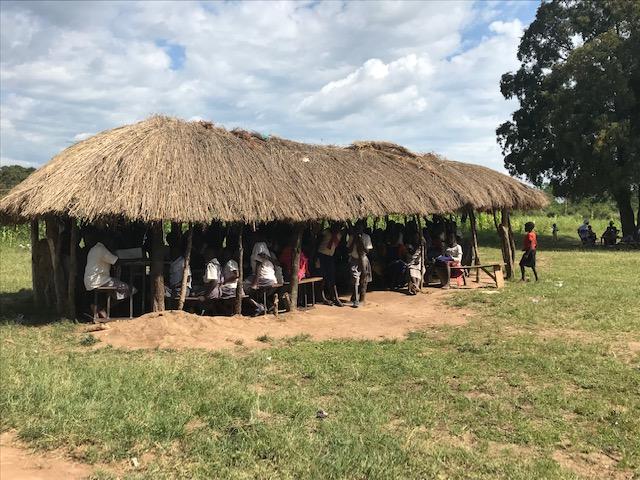
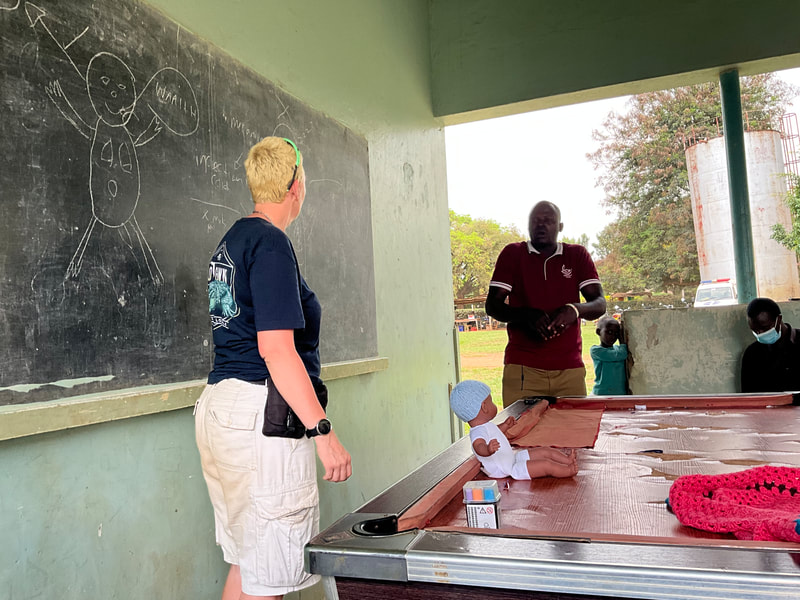
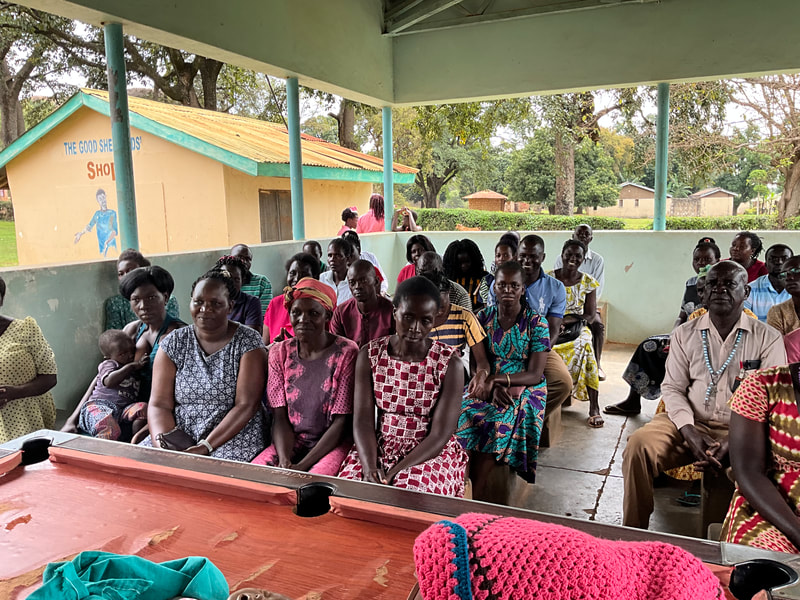
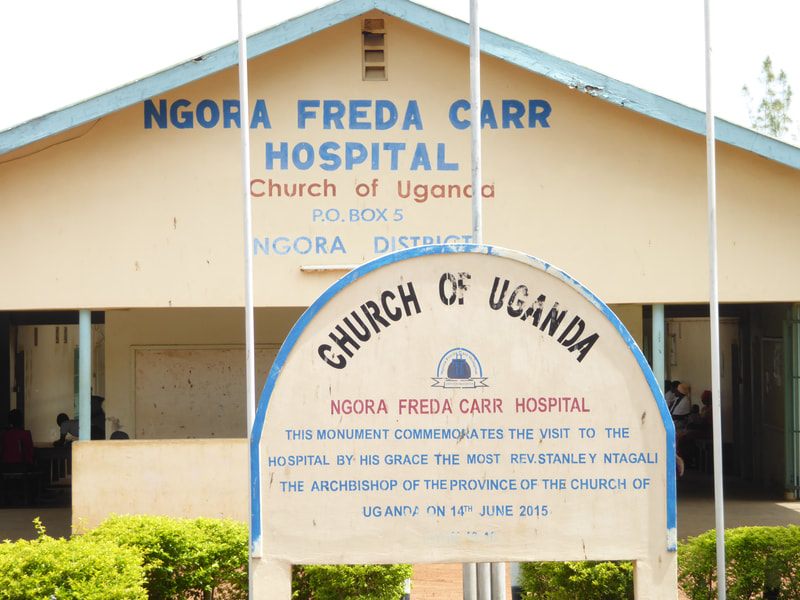
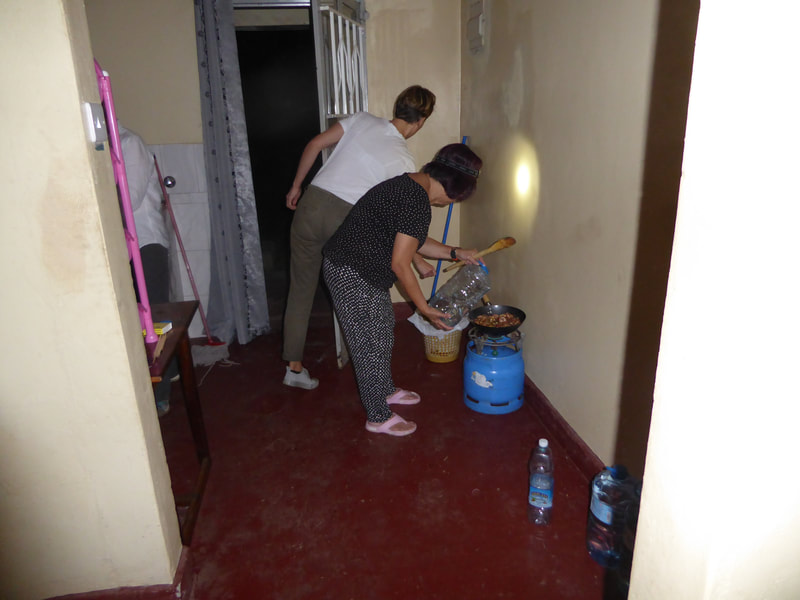
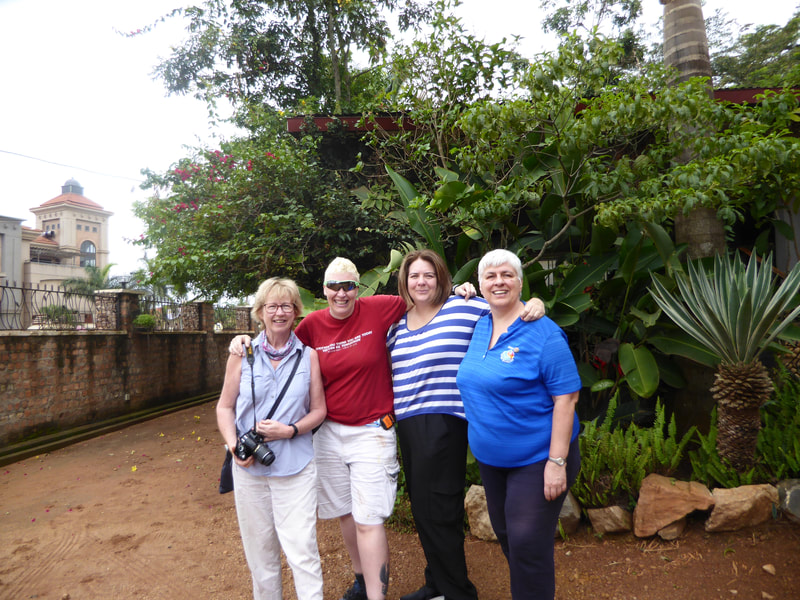
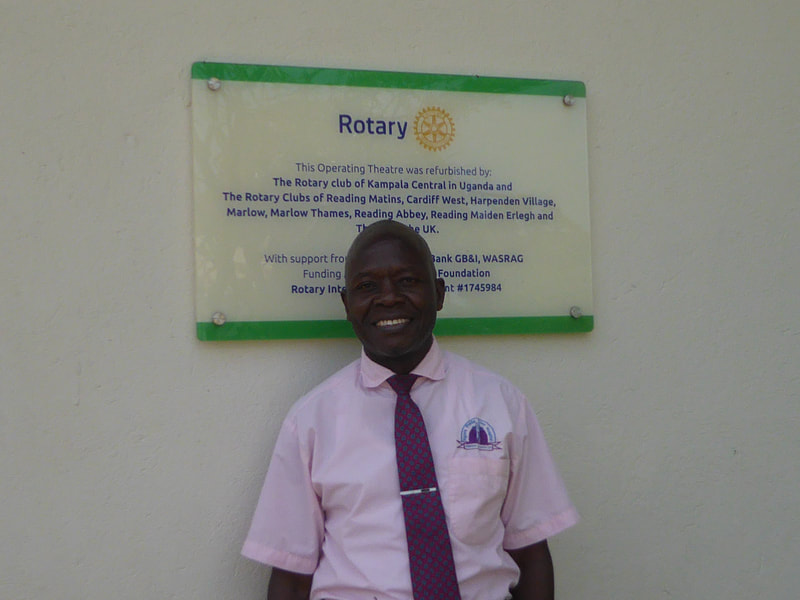
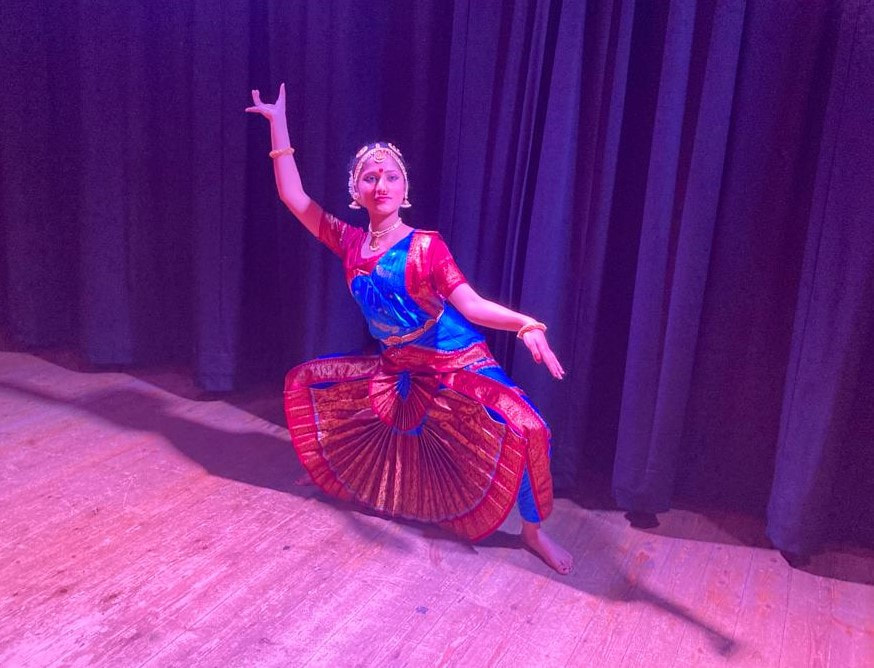
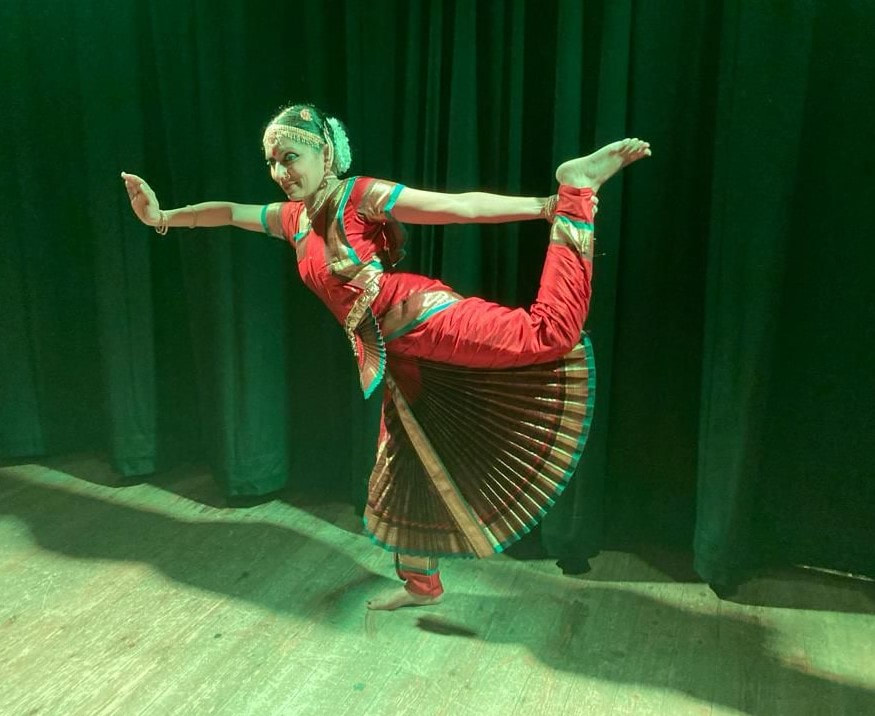
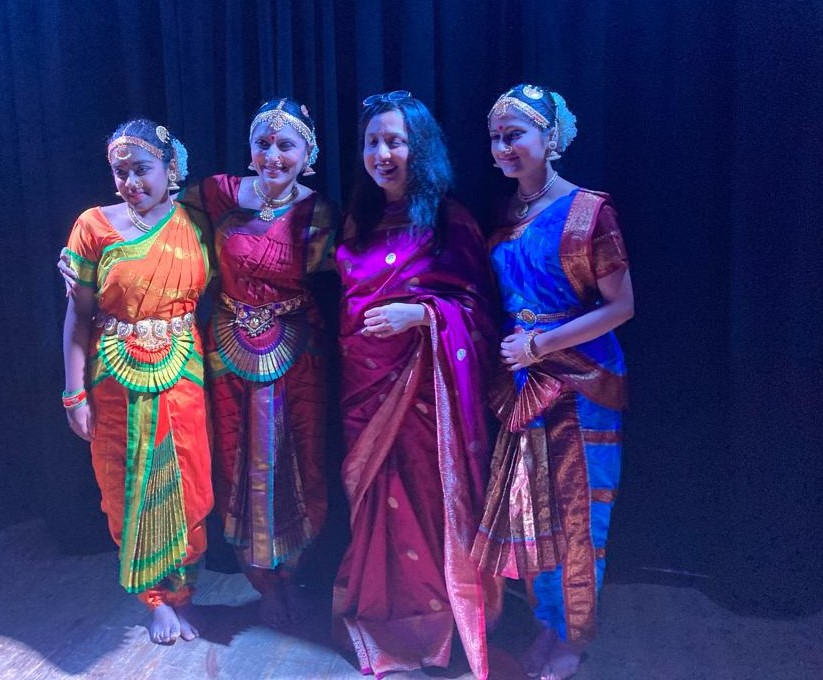
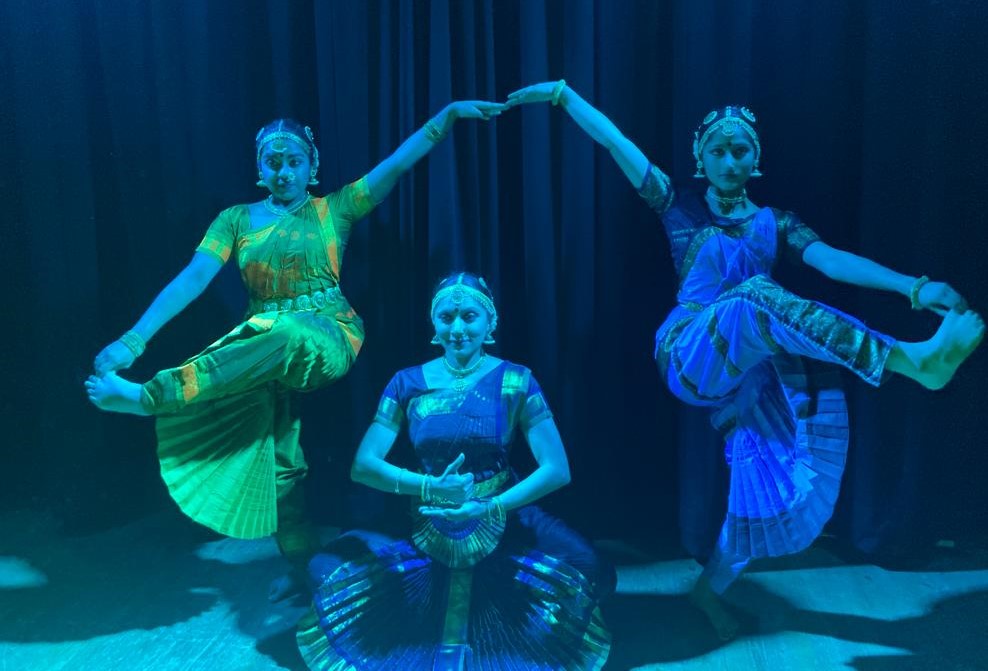
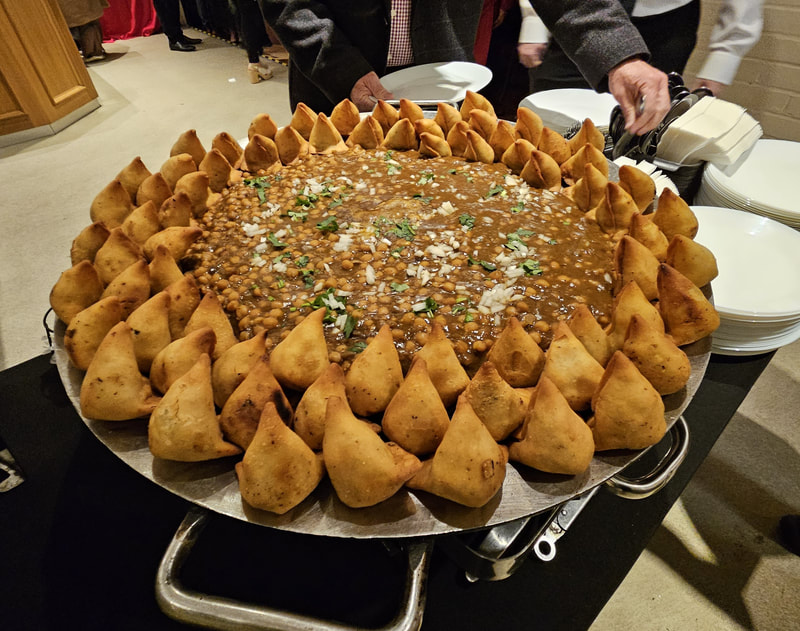
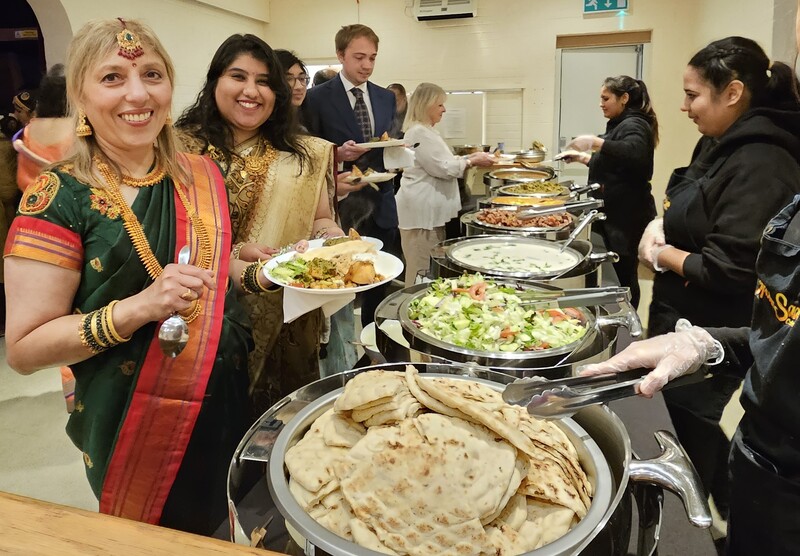
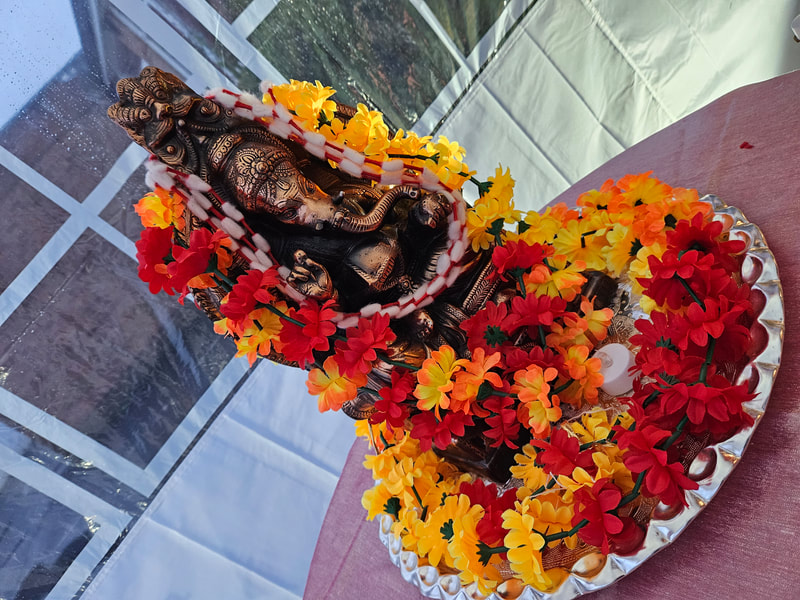
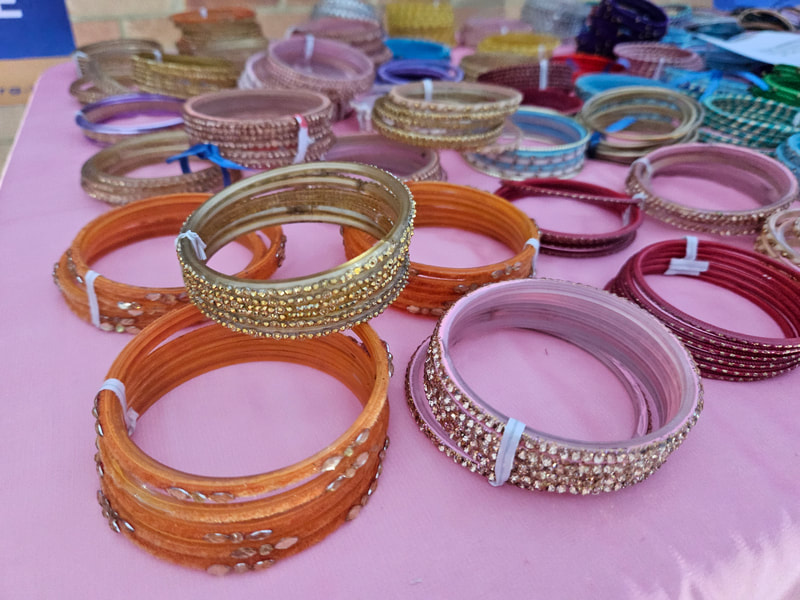
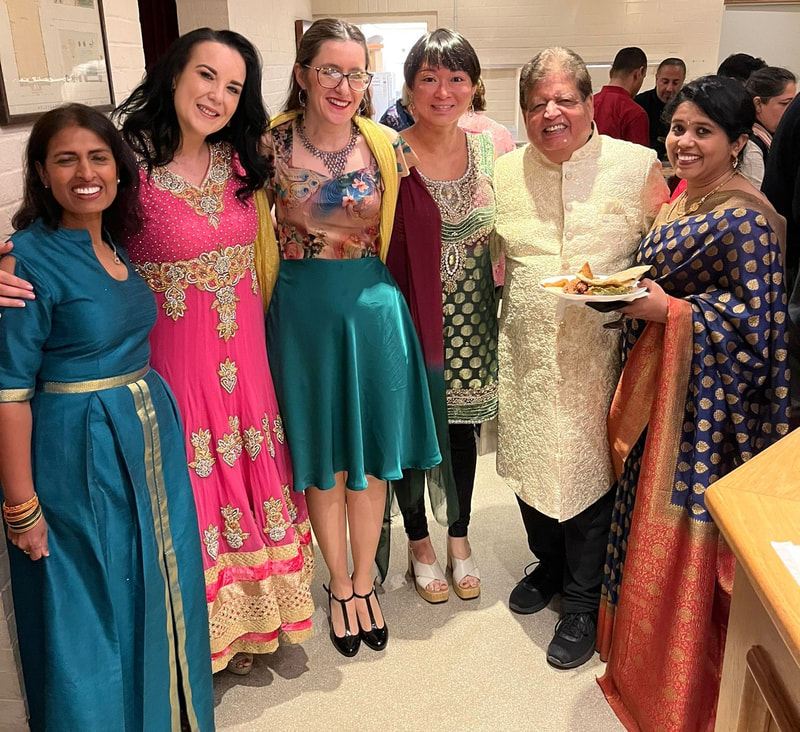
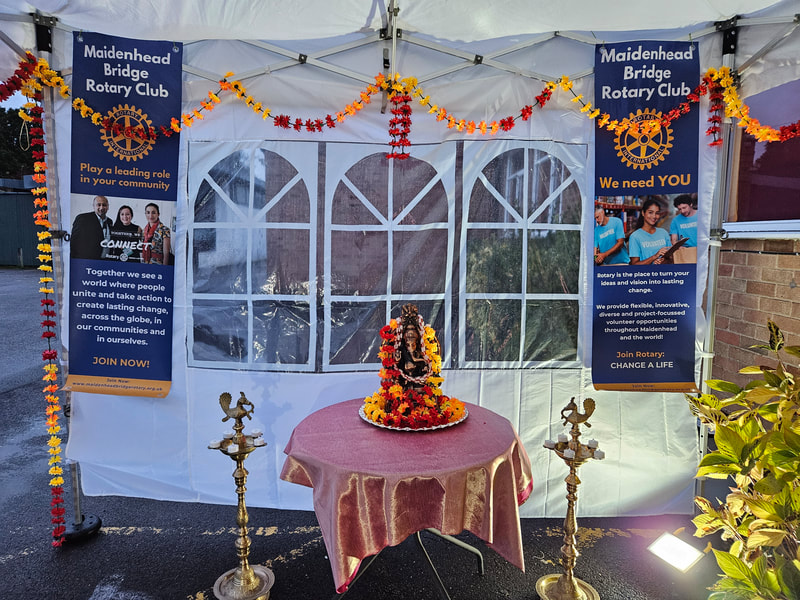
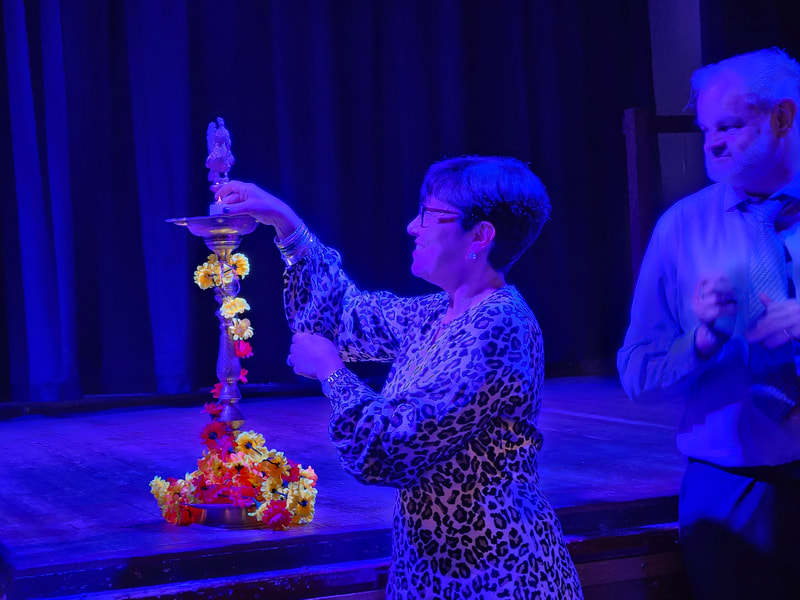
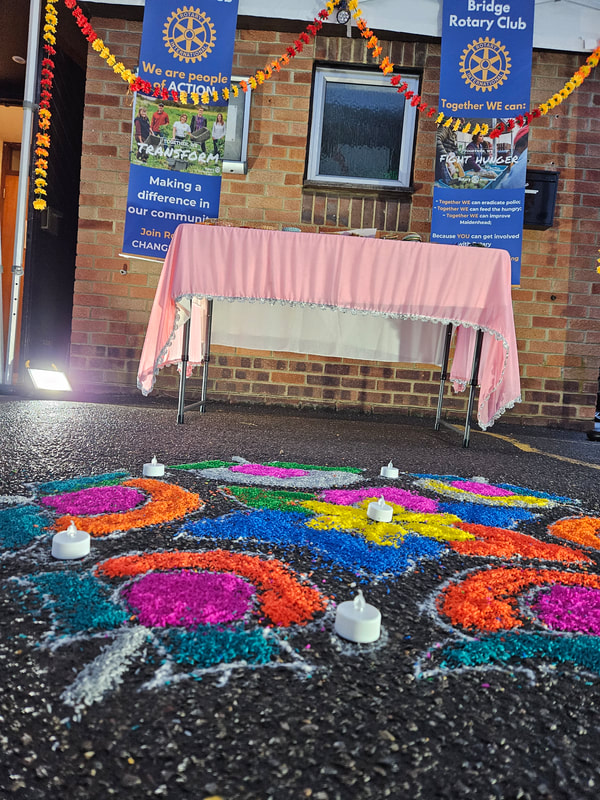
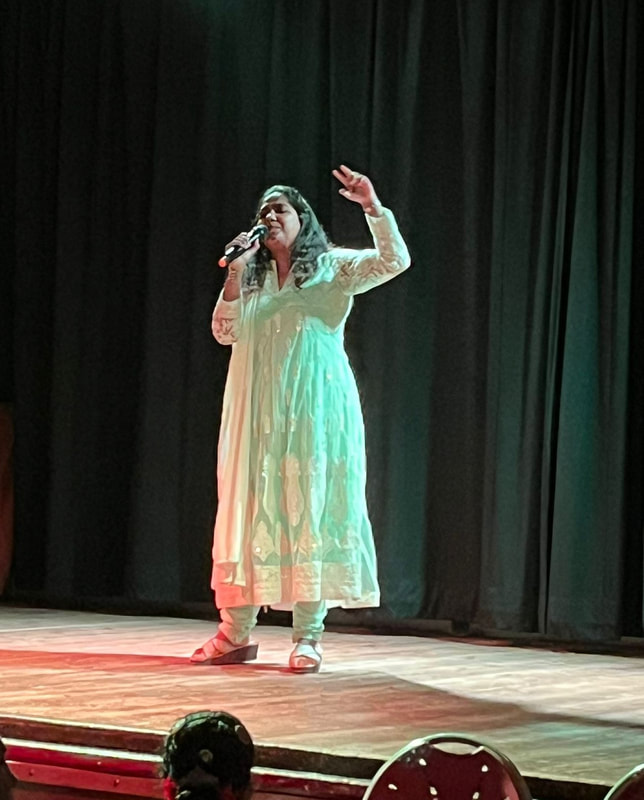
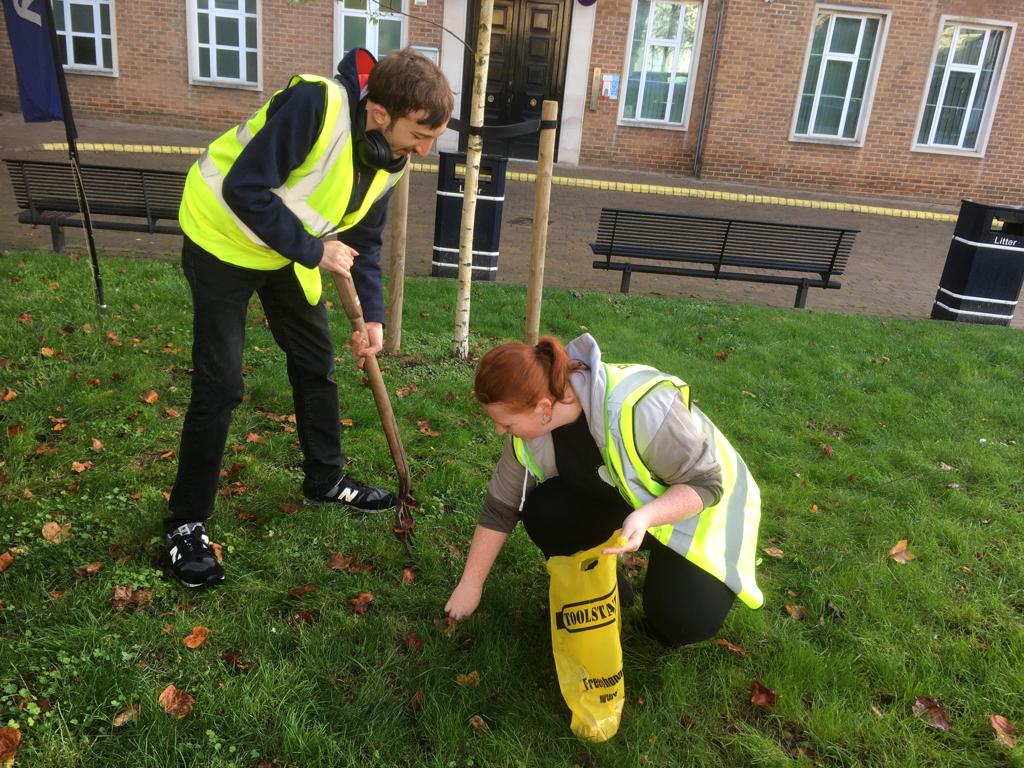
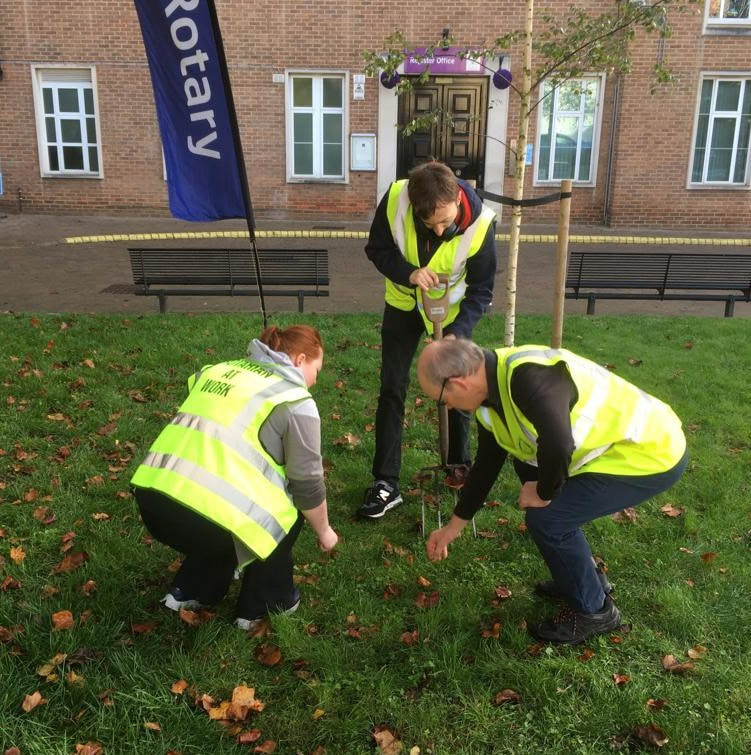
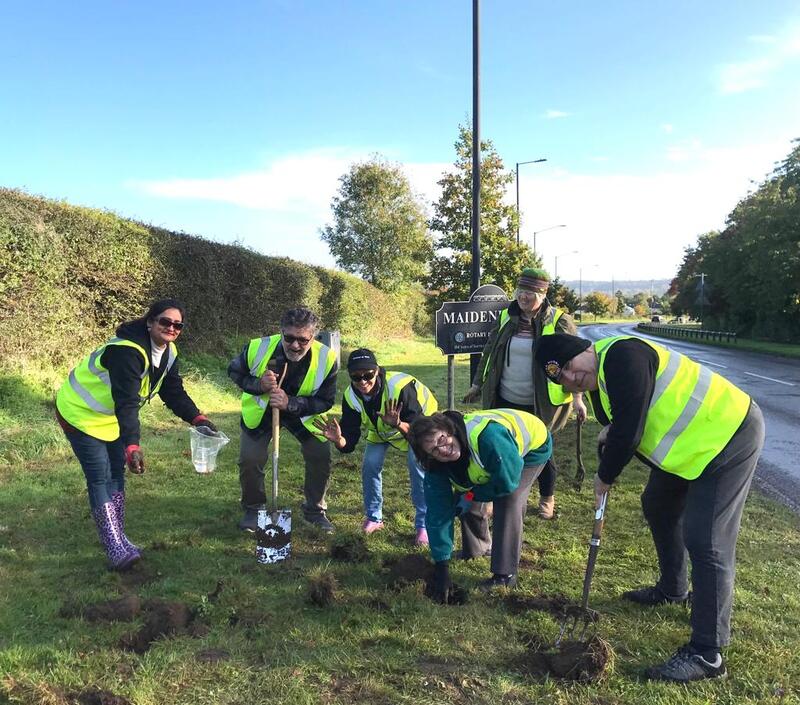
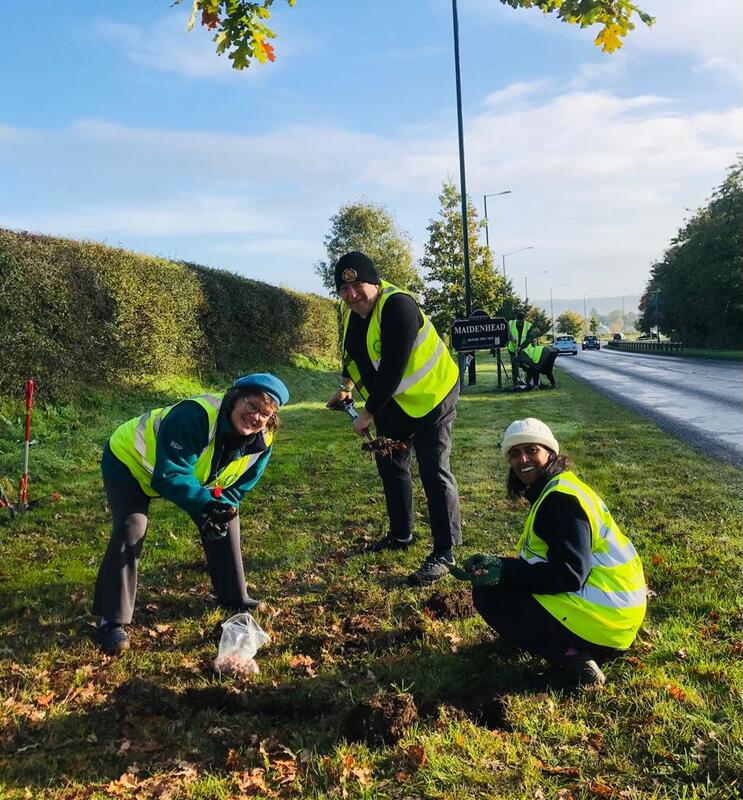

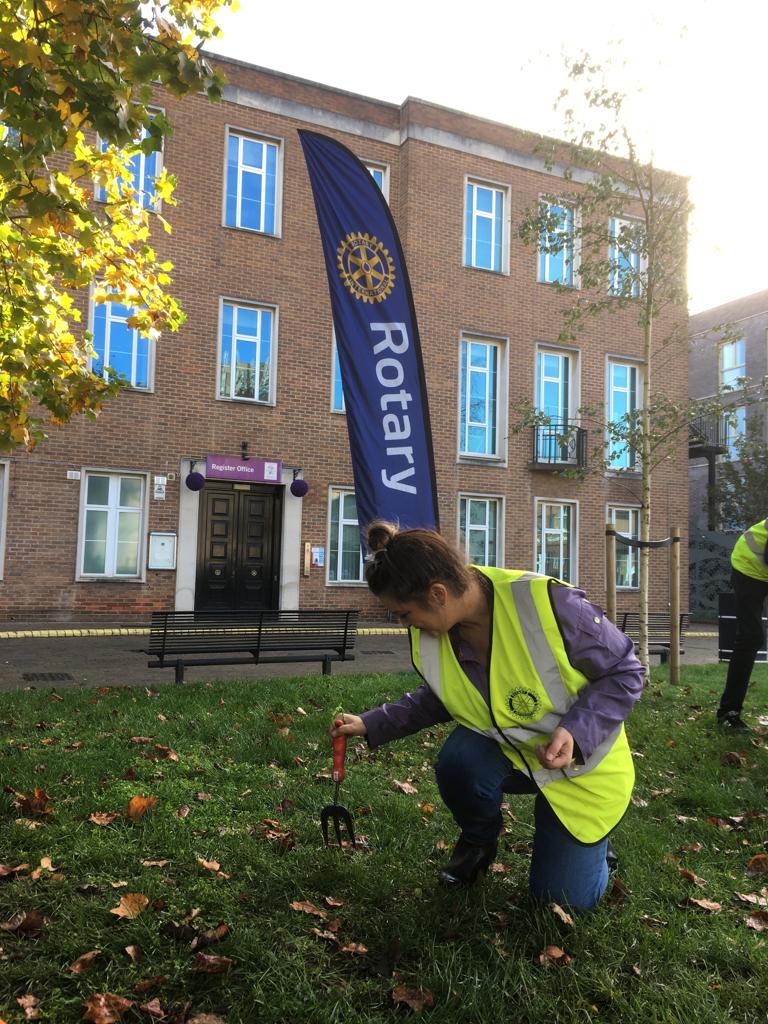
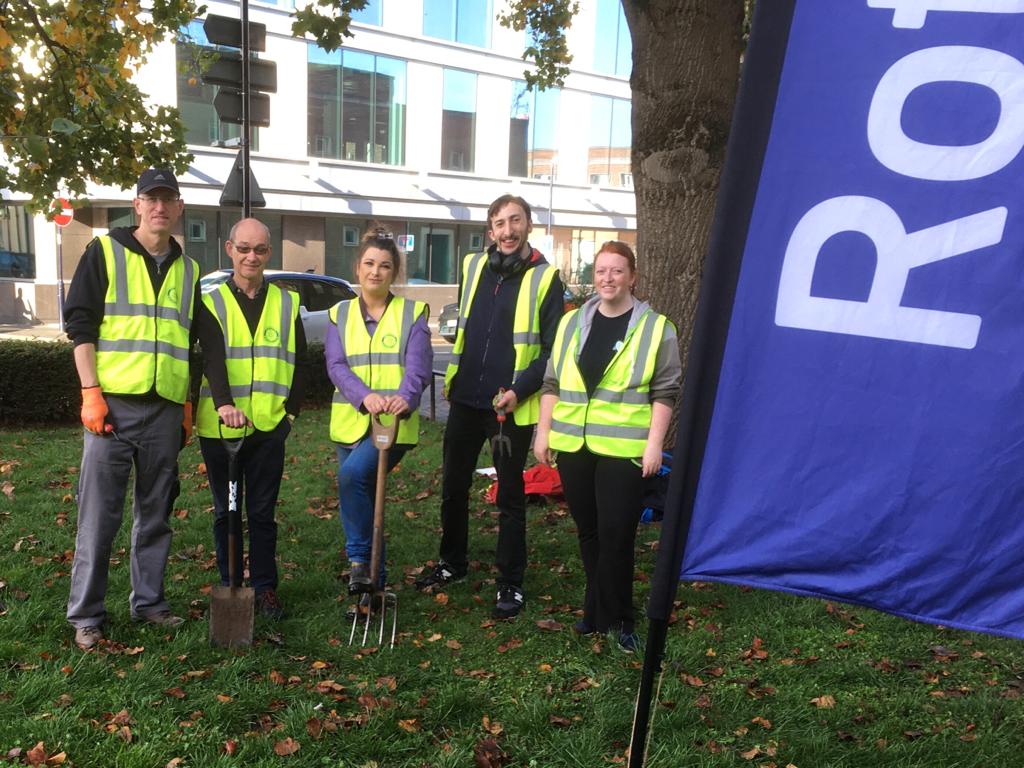
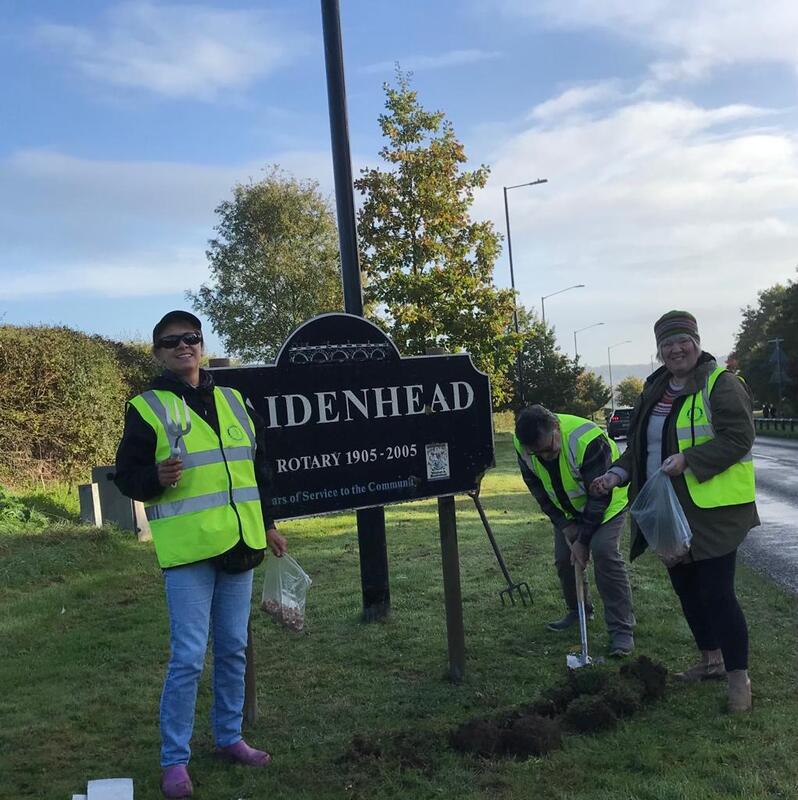
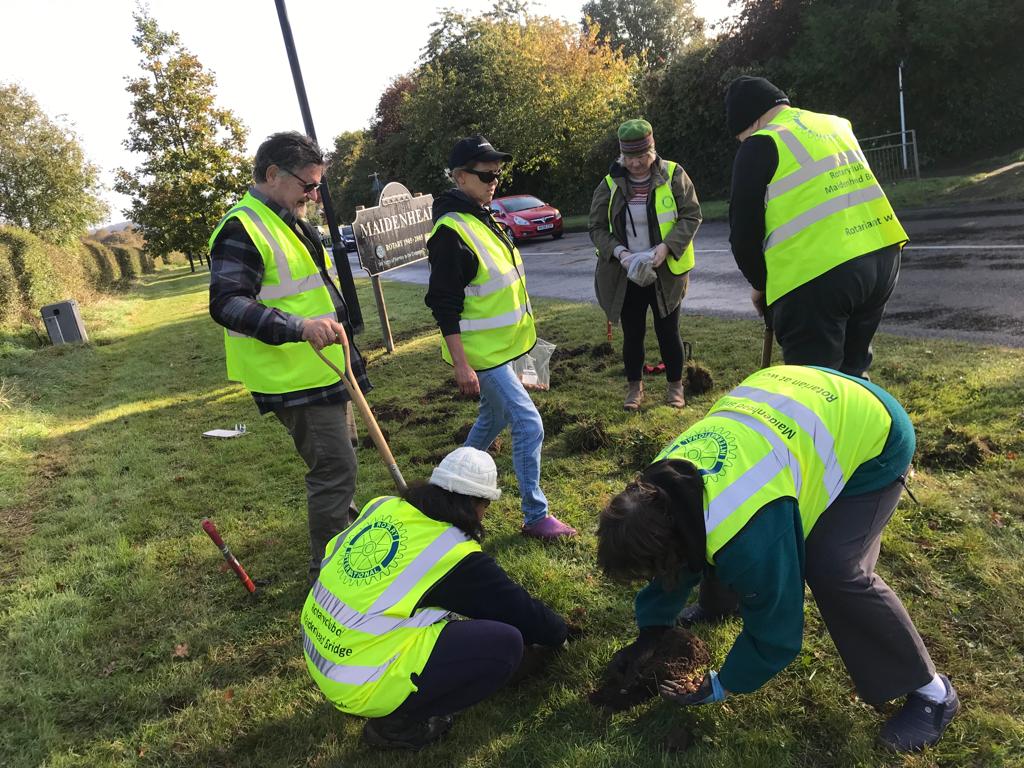
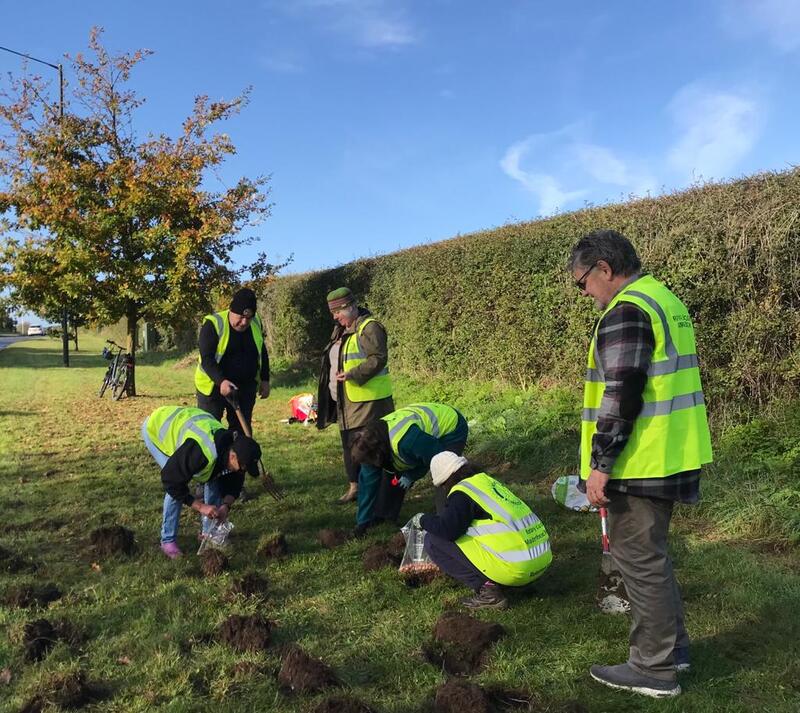
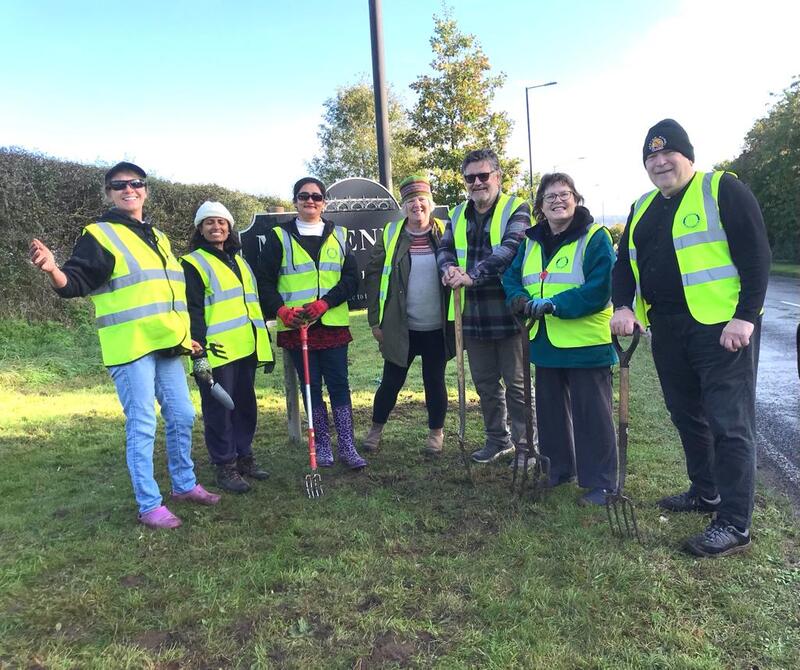
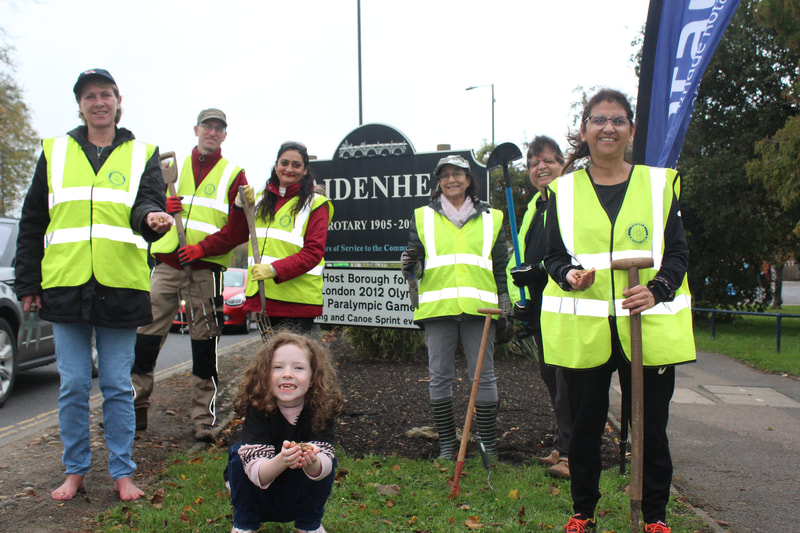
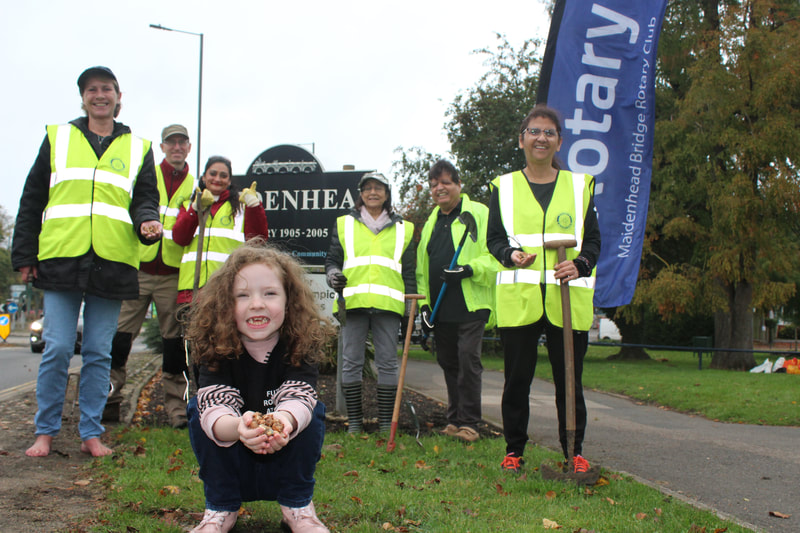
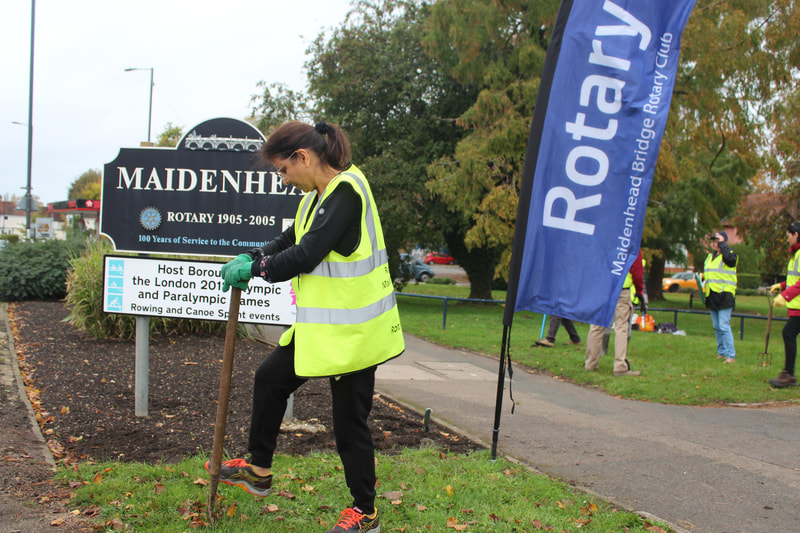
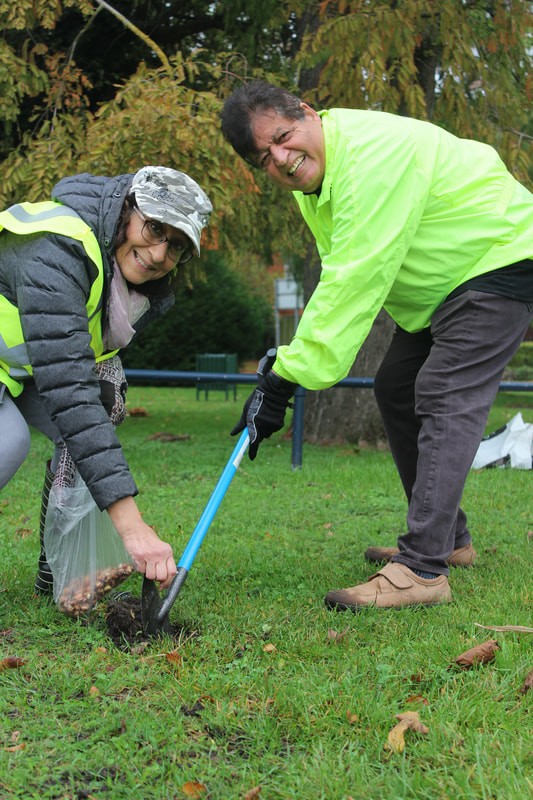
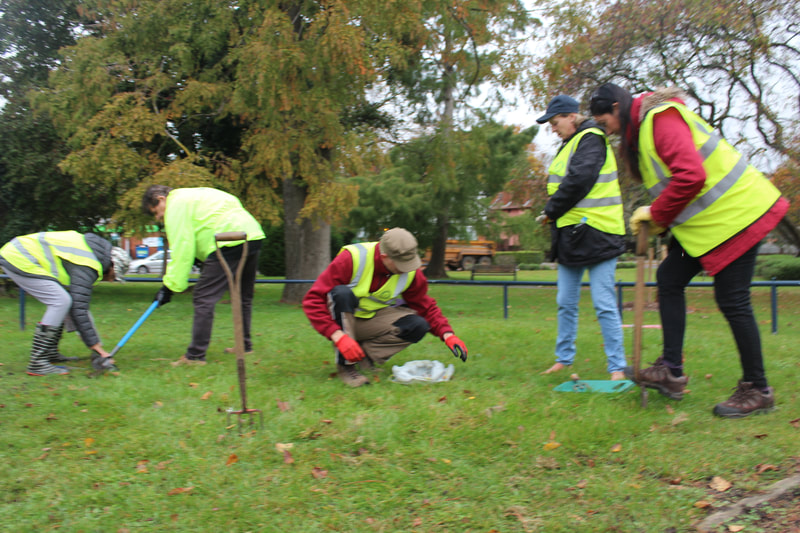
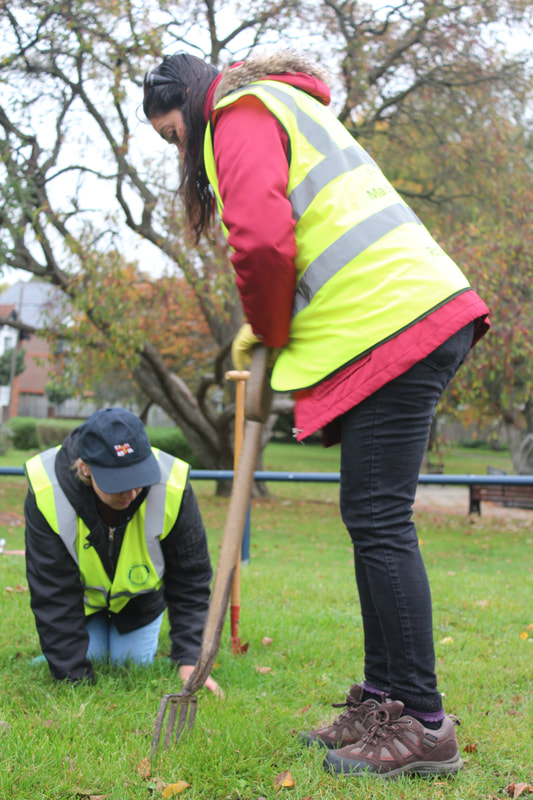
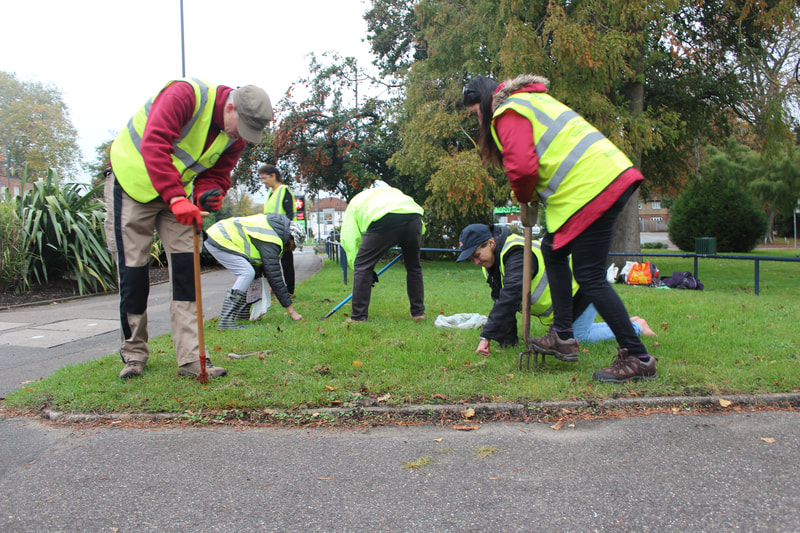
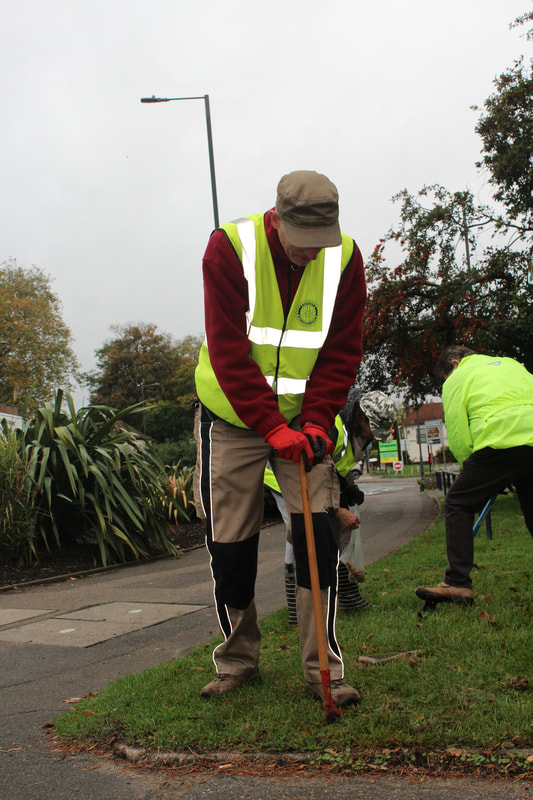
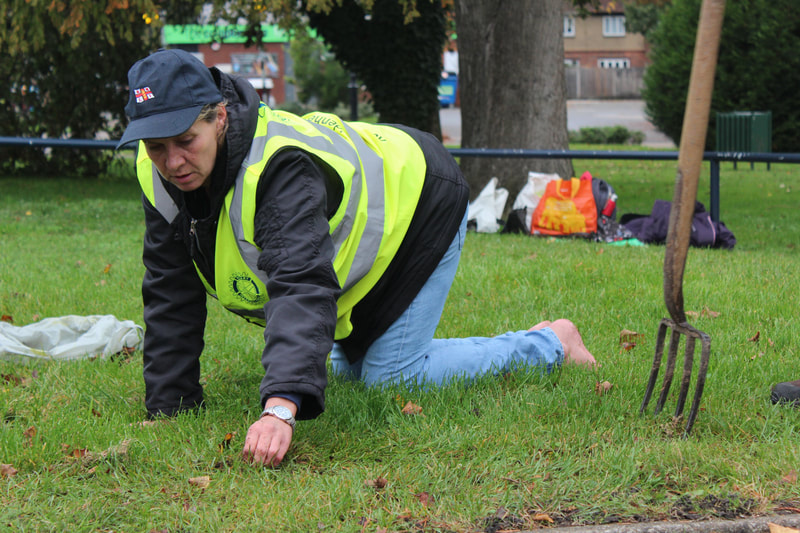
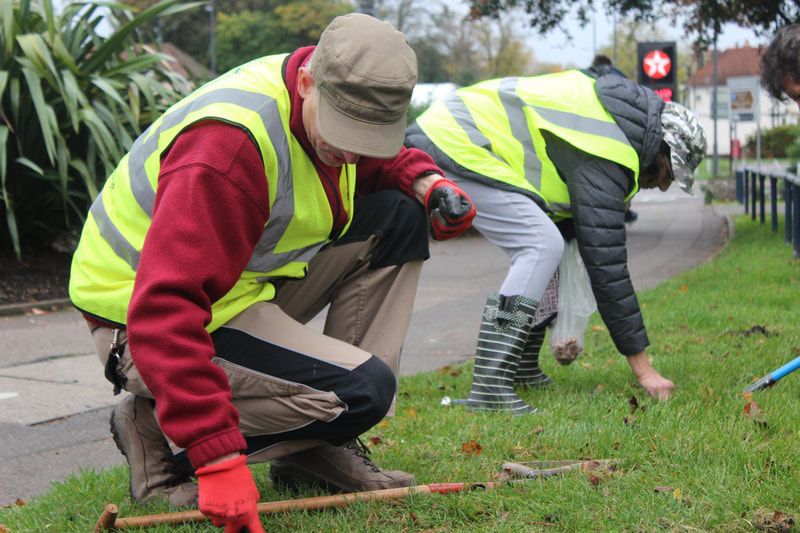
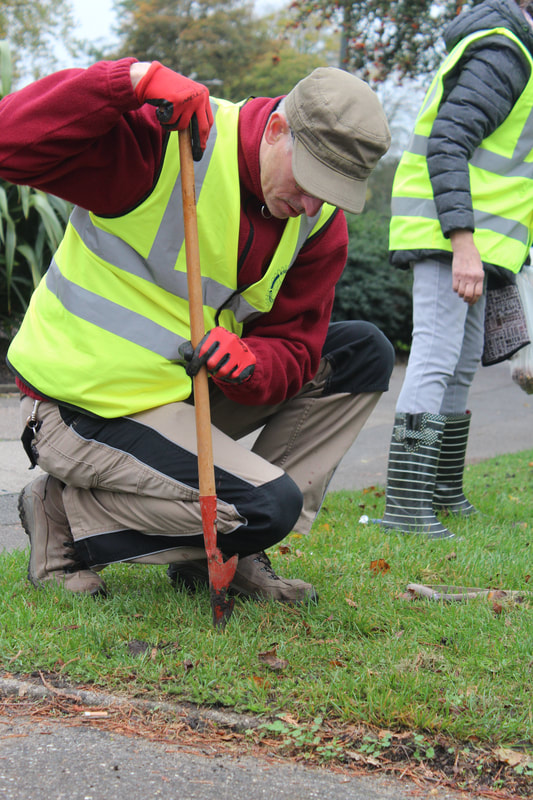
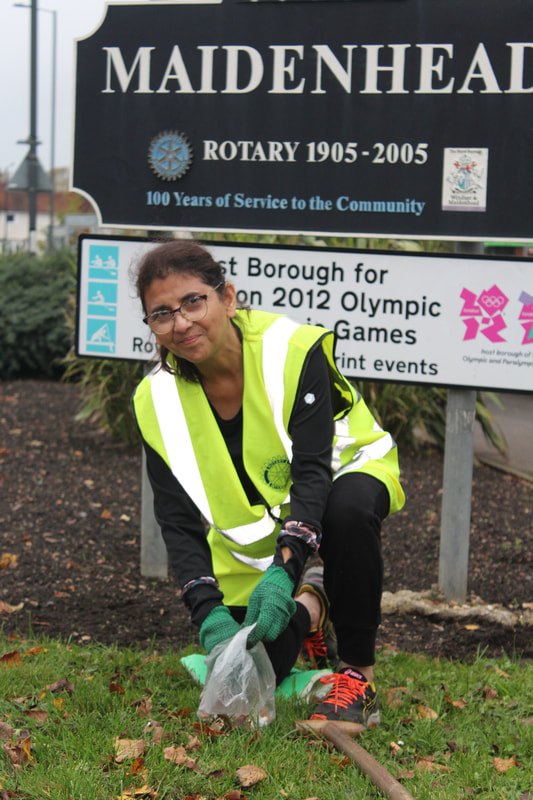
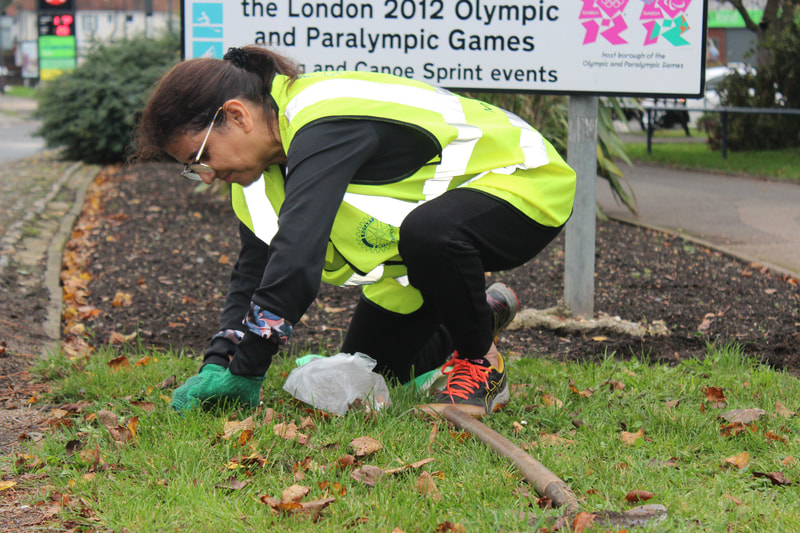
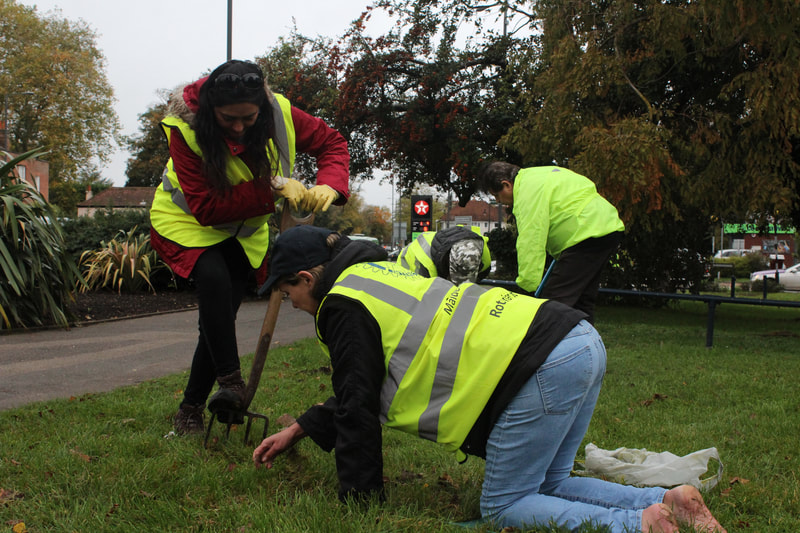
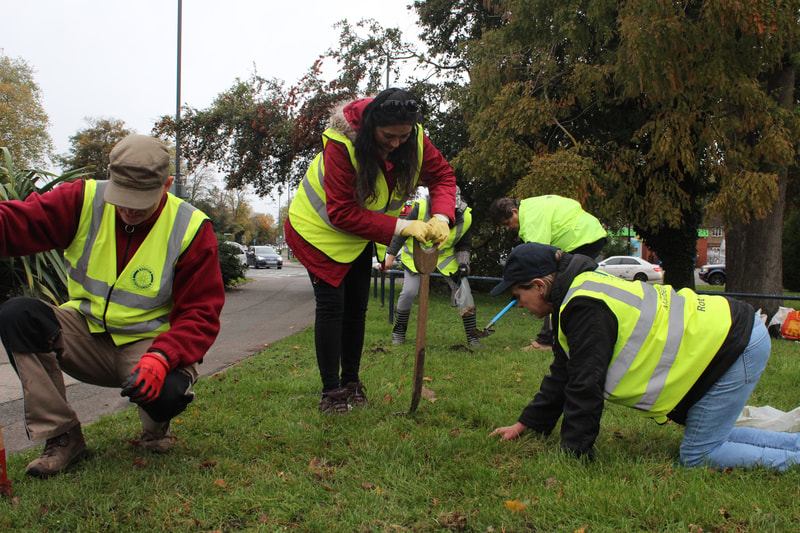
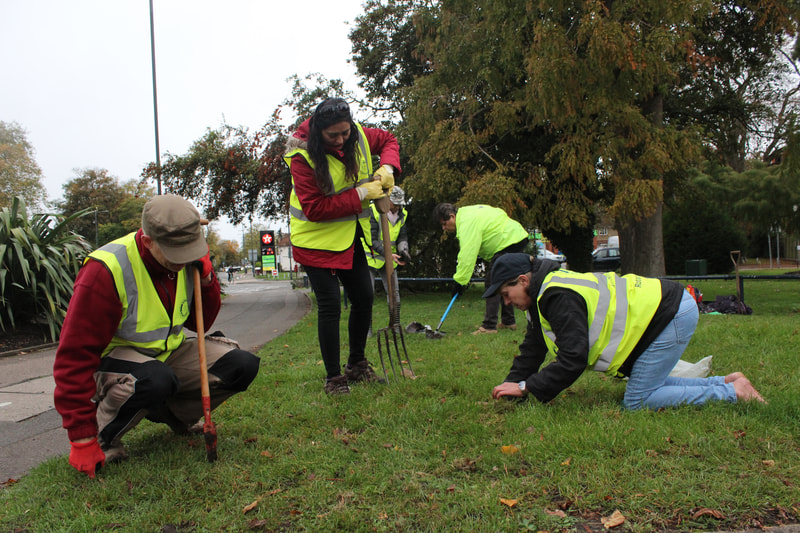
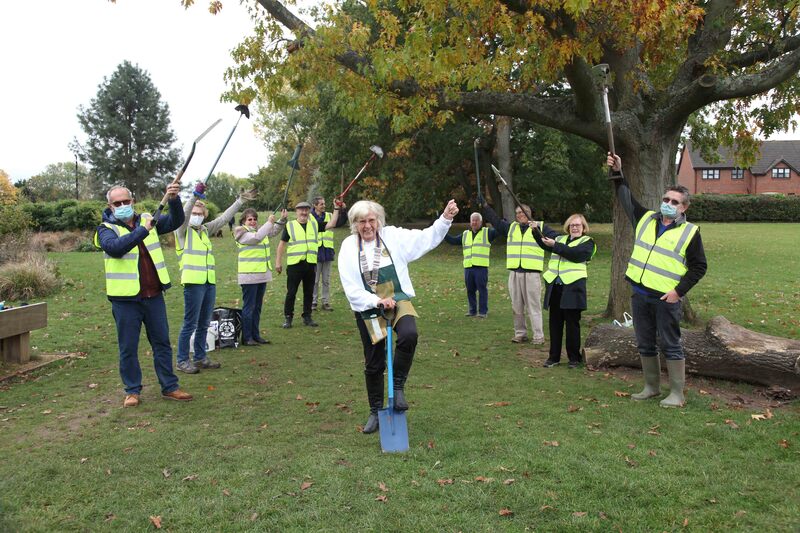
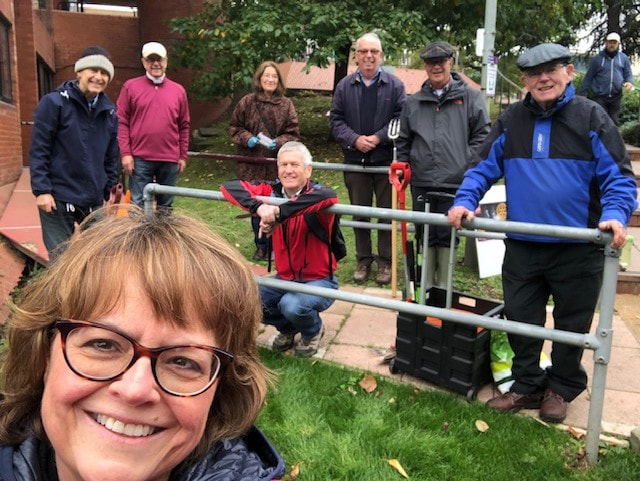
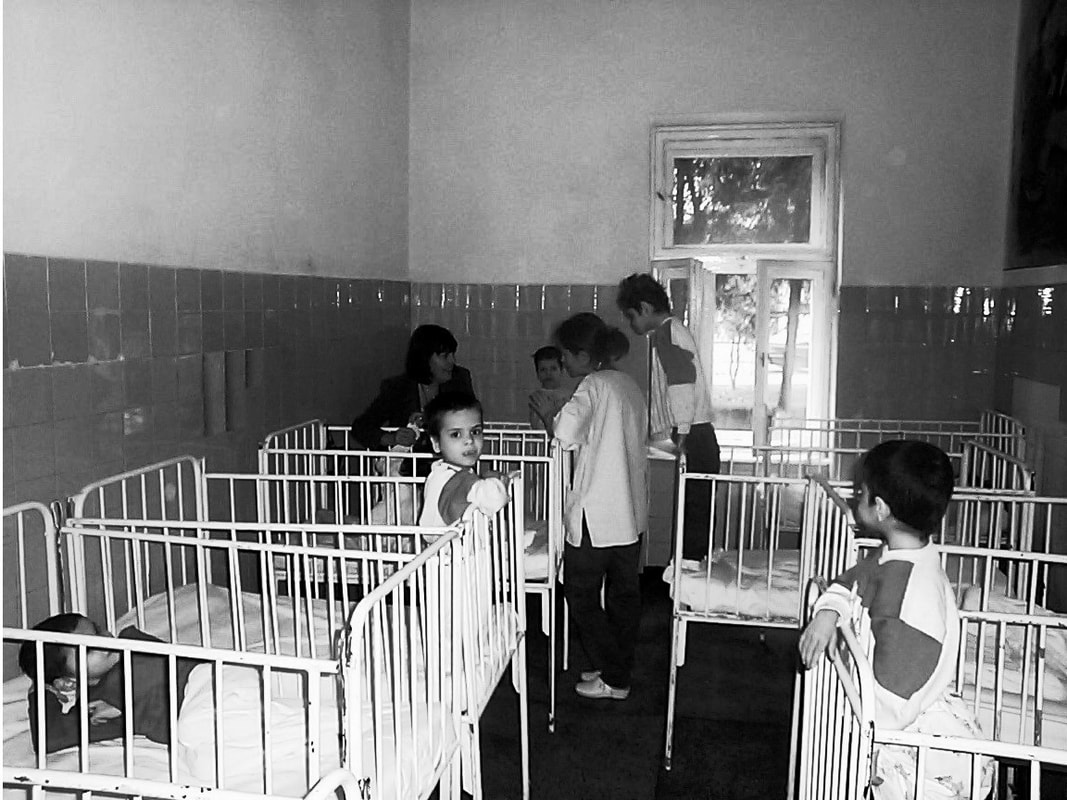
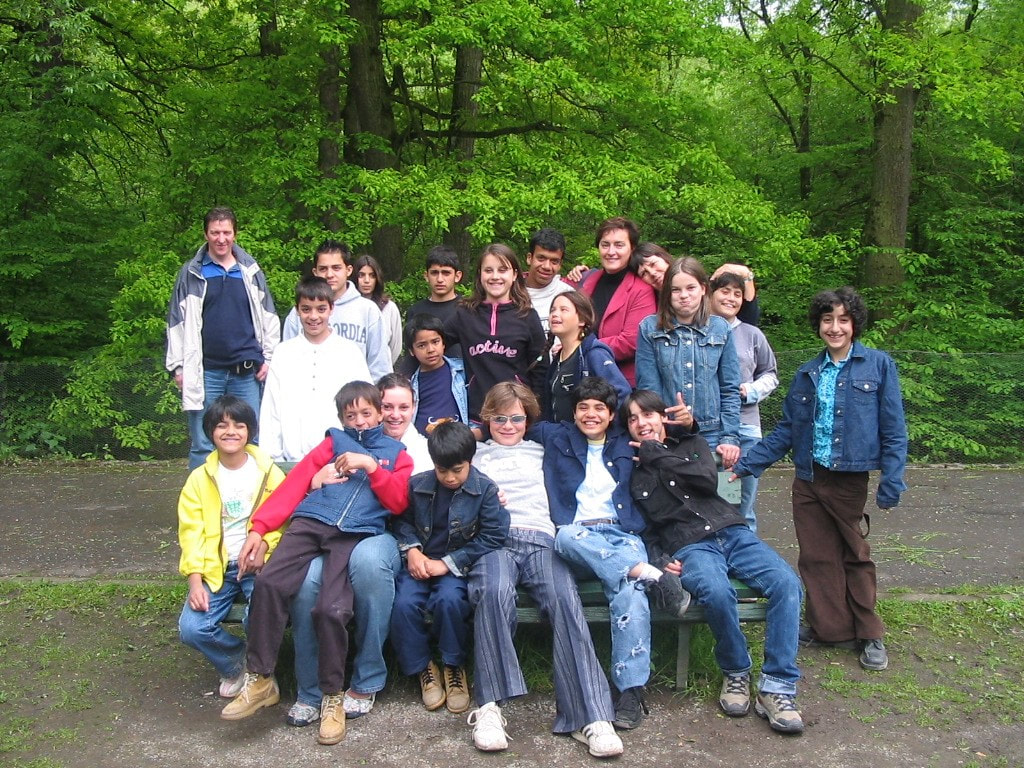
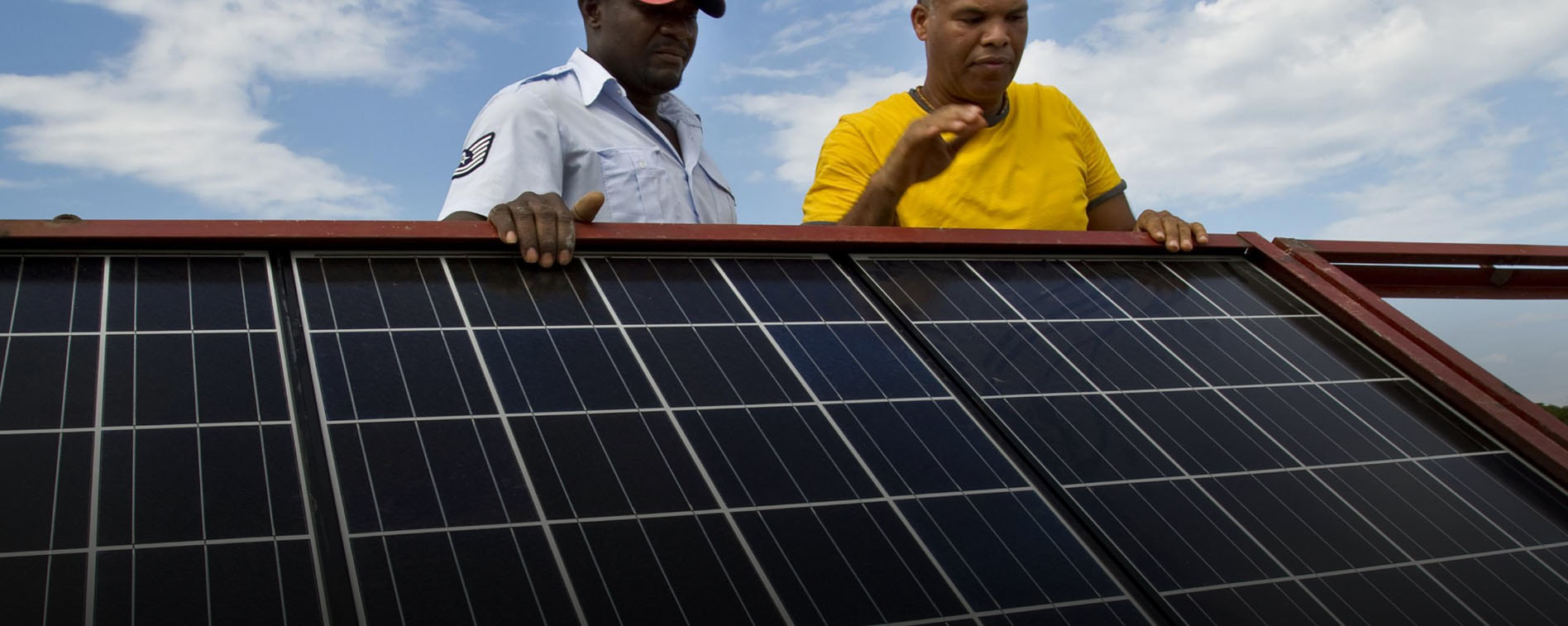
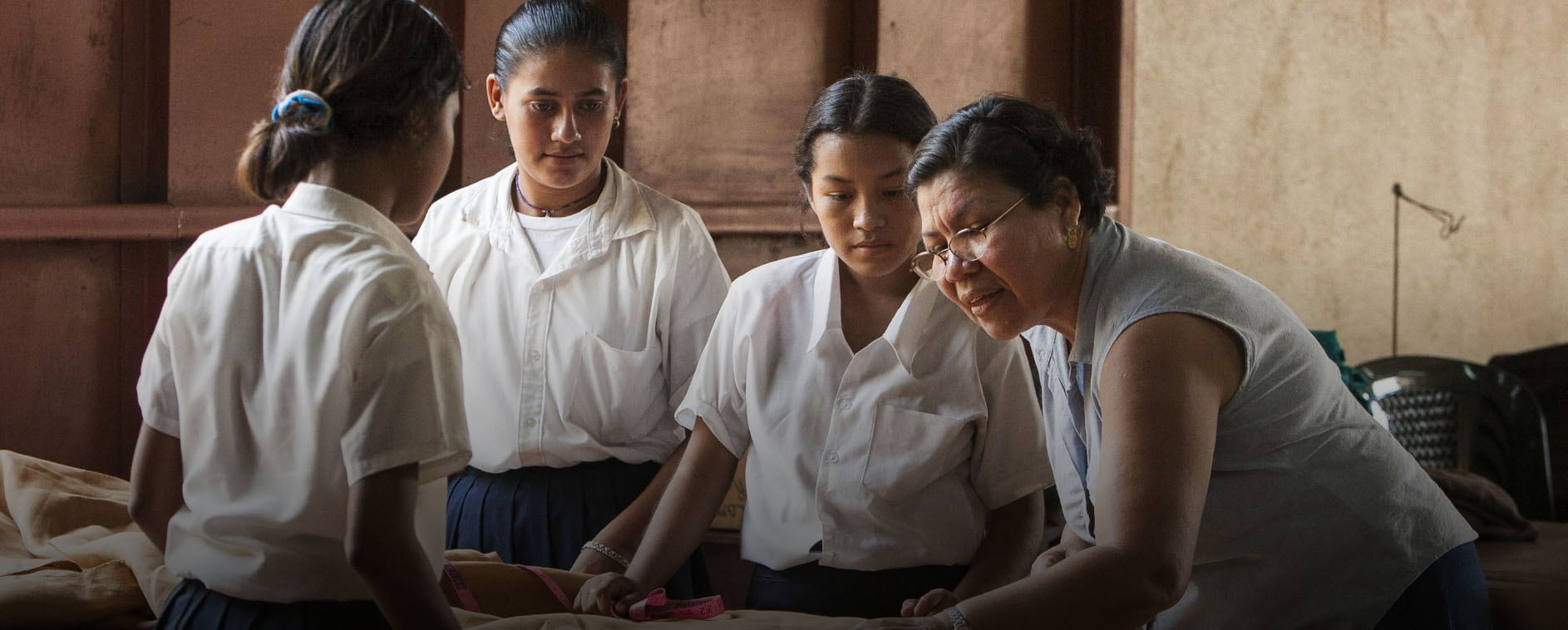
 RSS Feed
RSS Feed